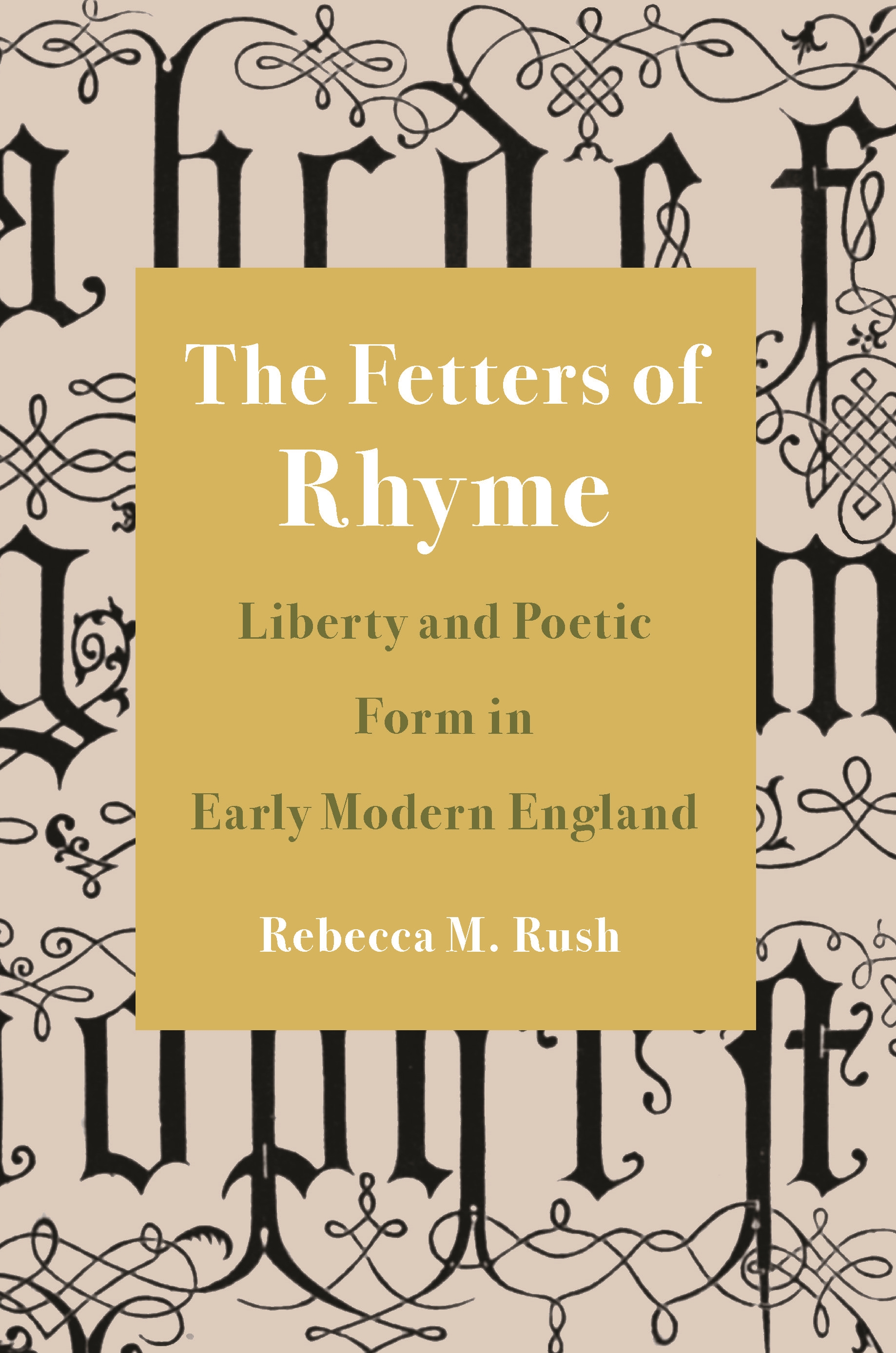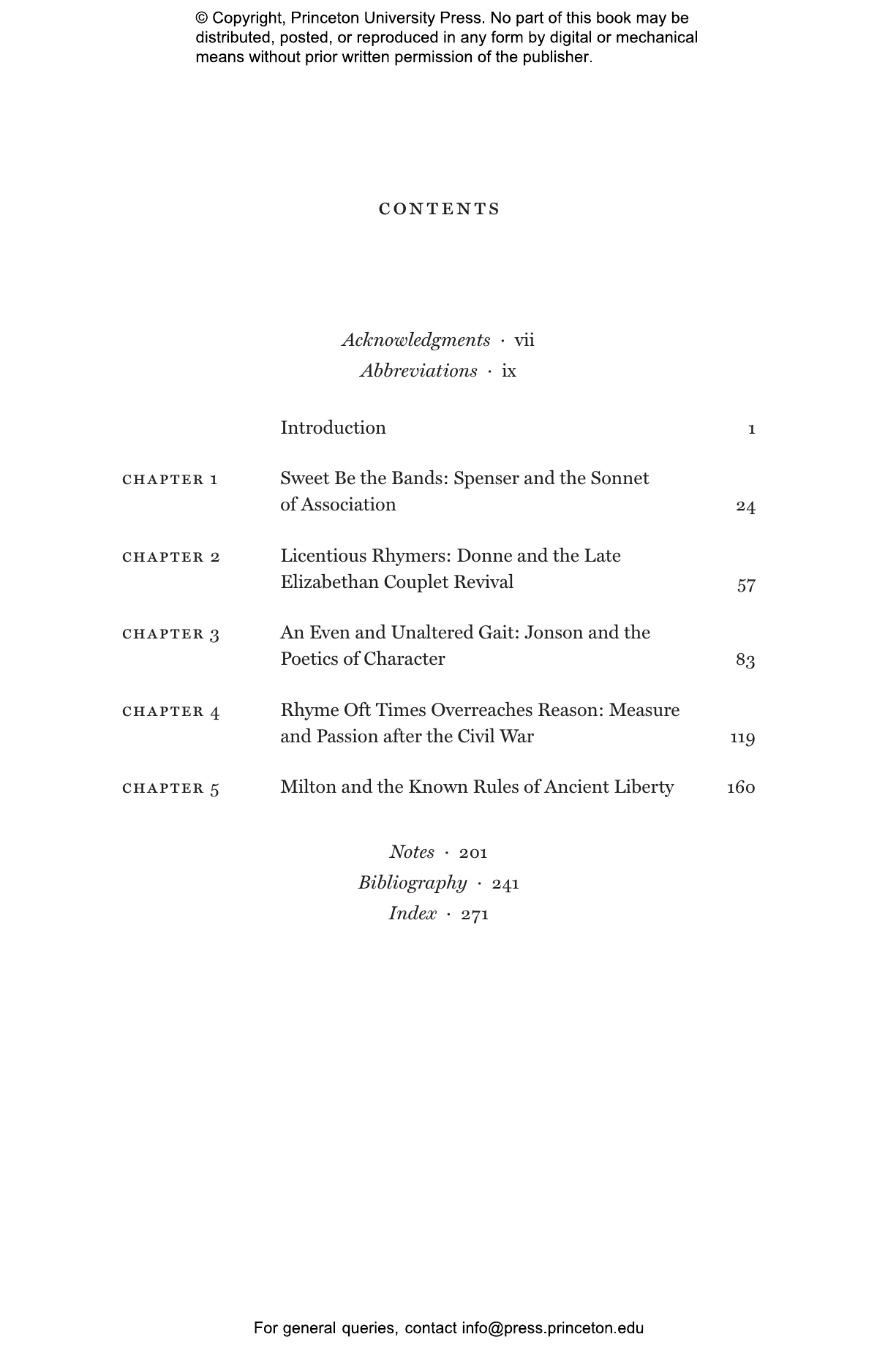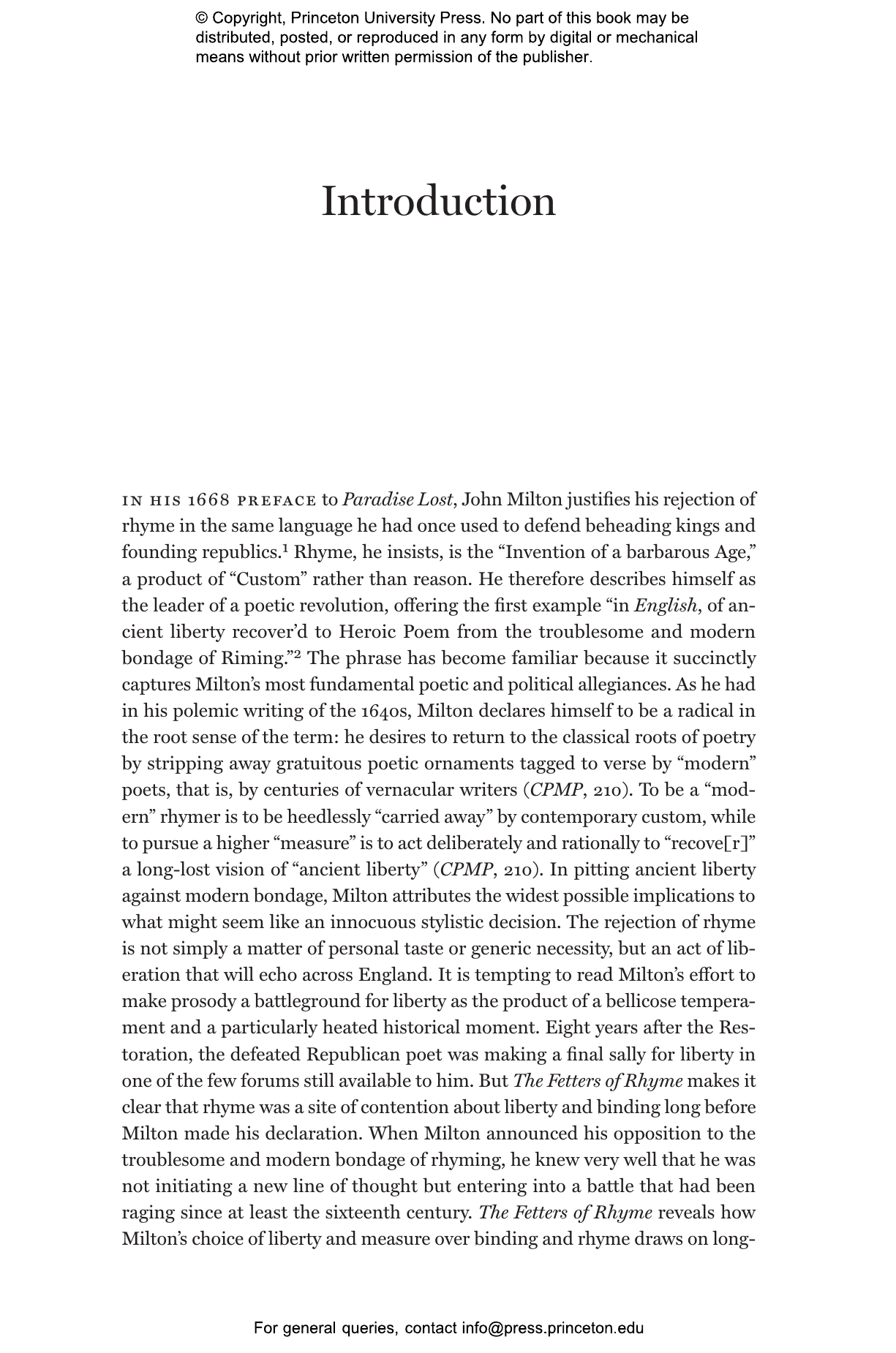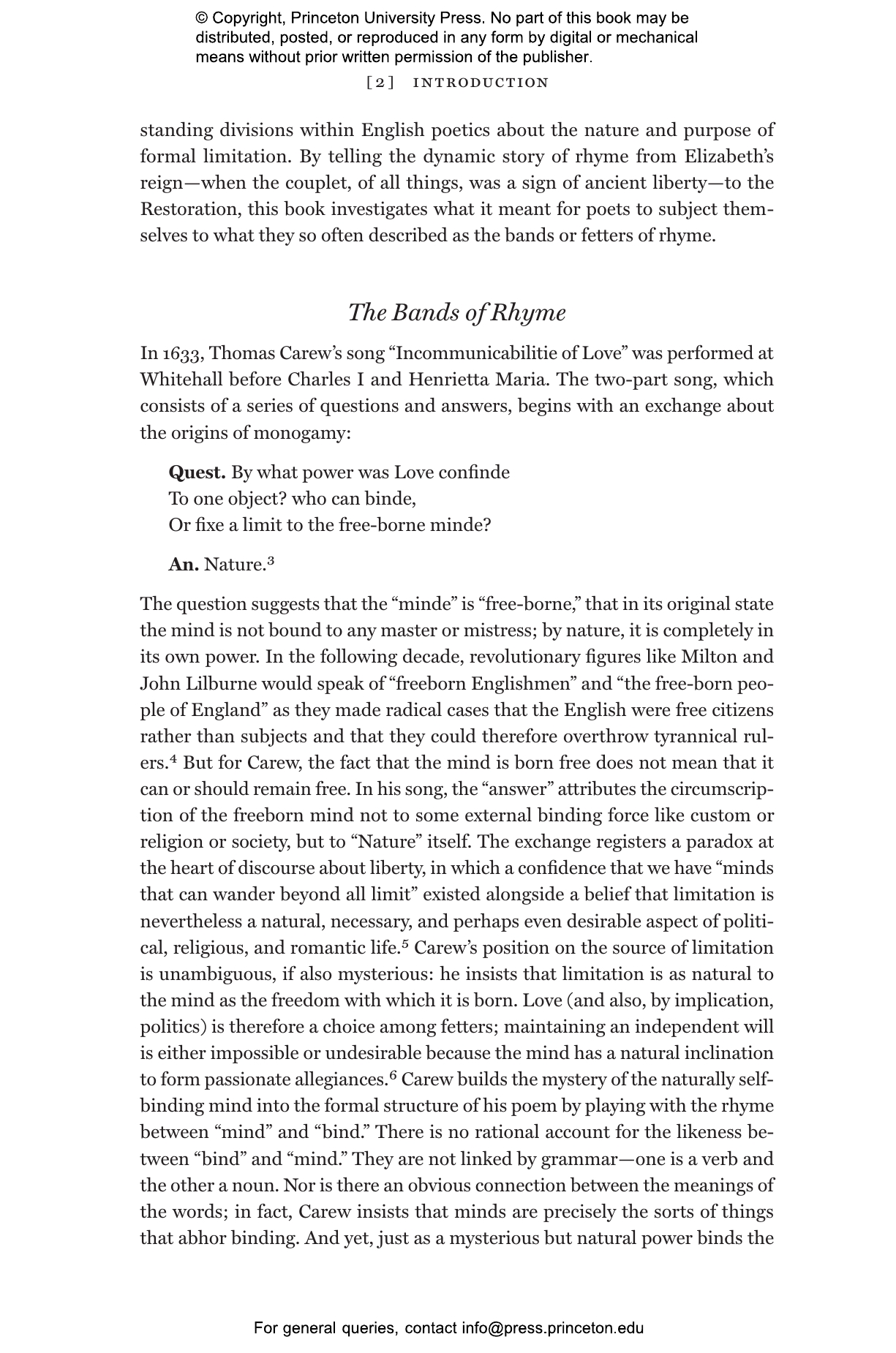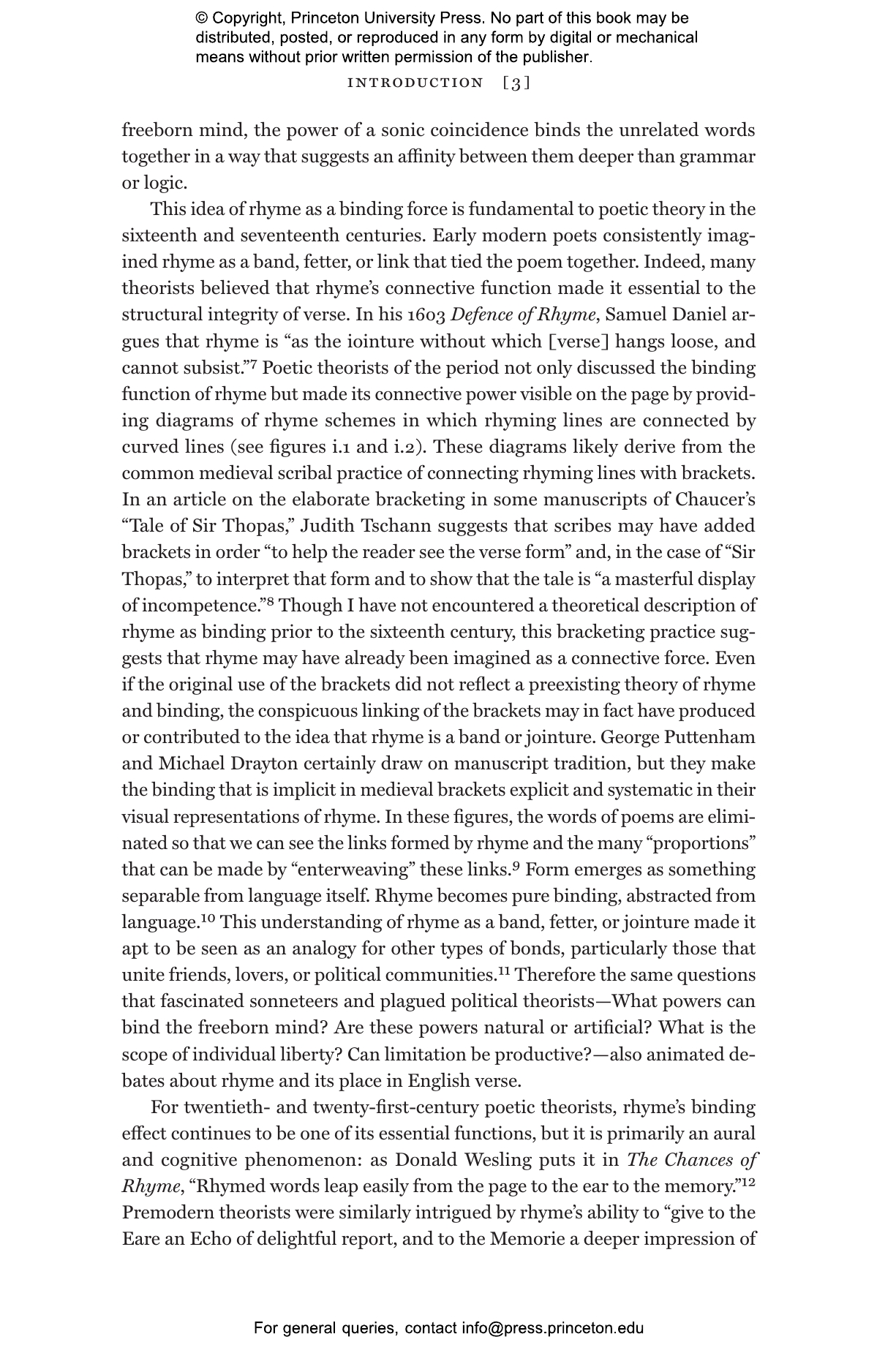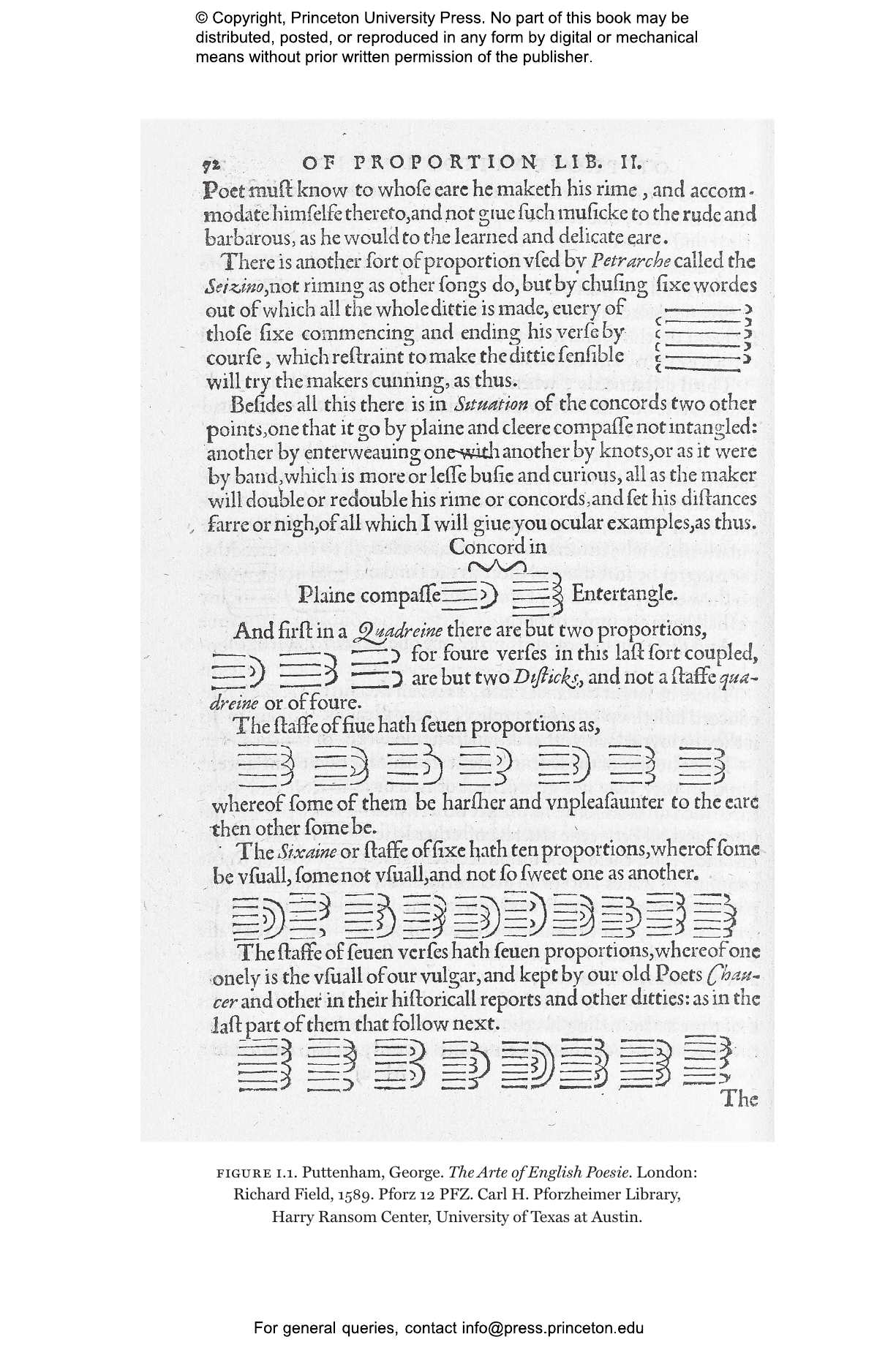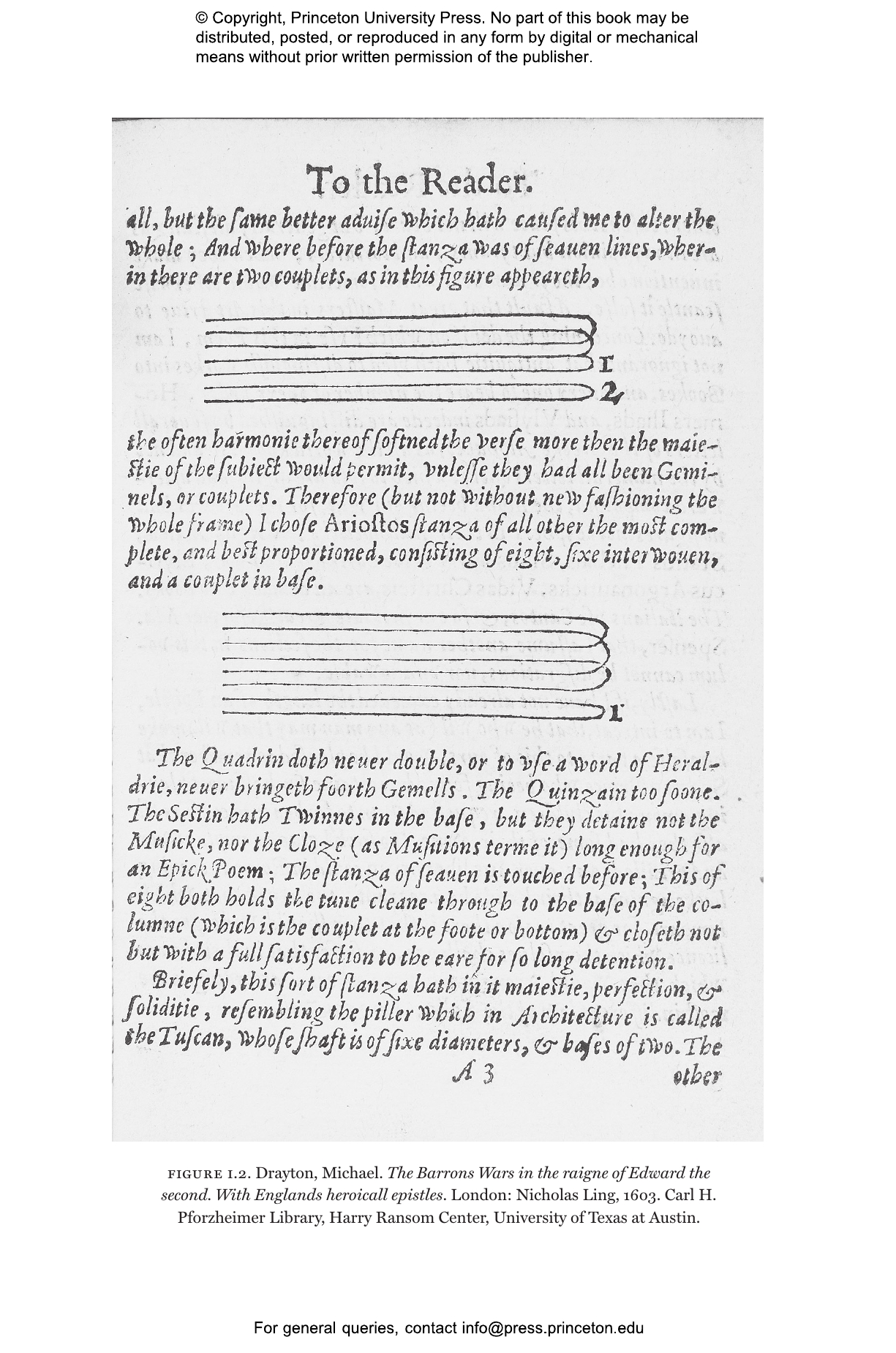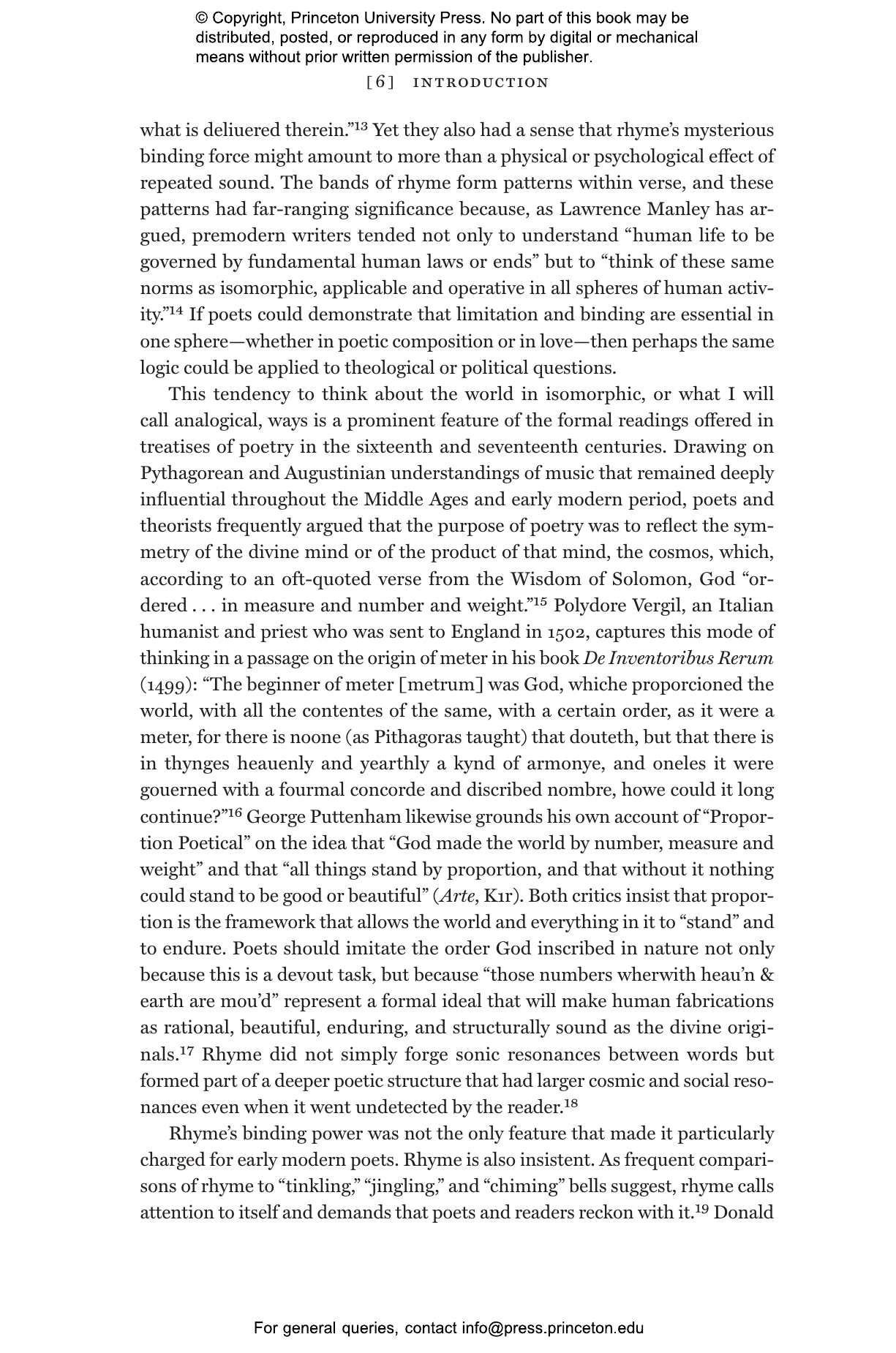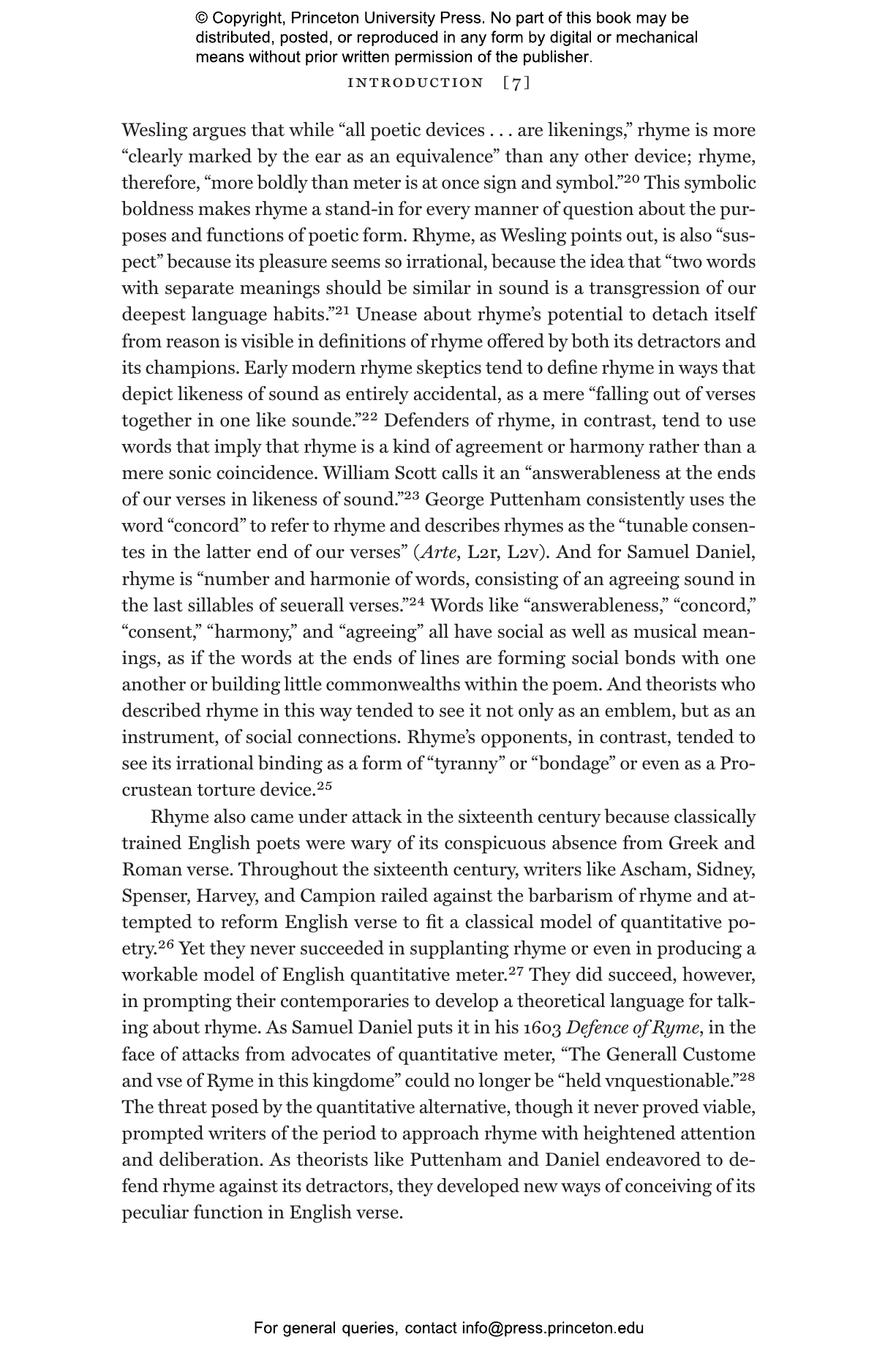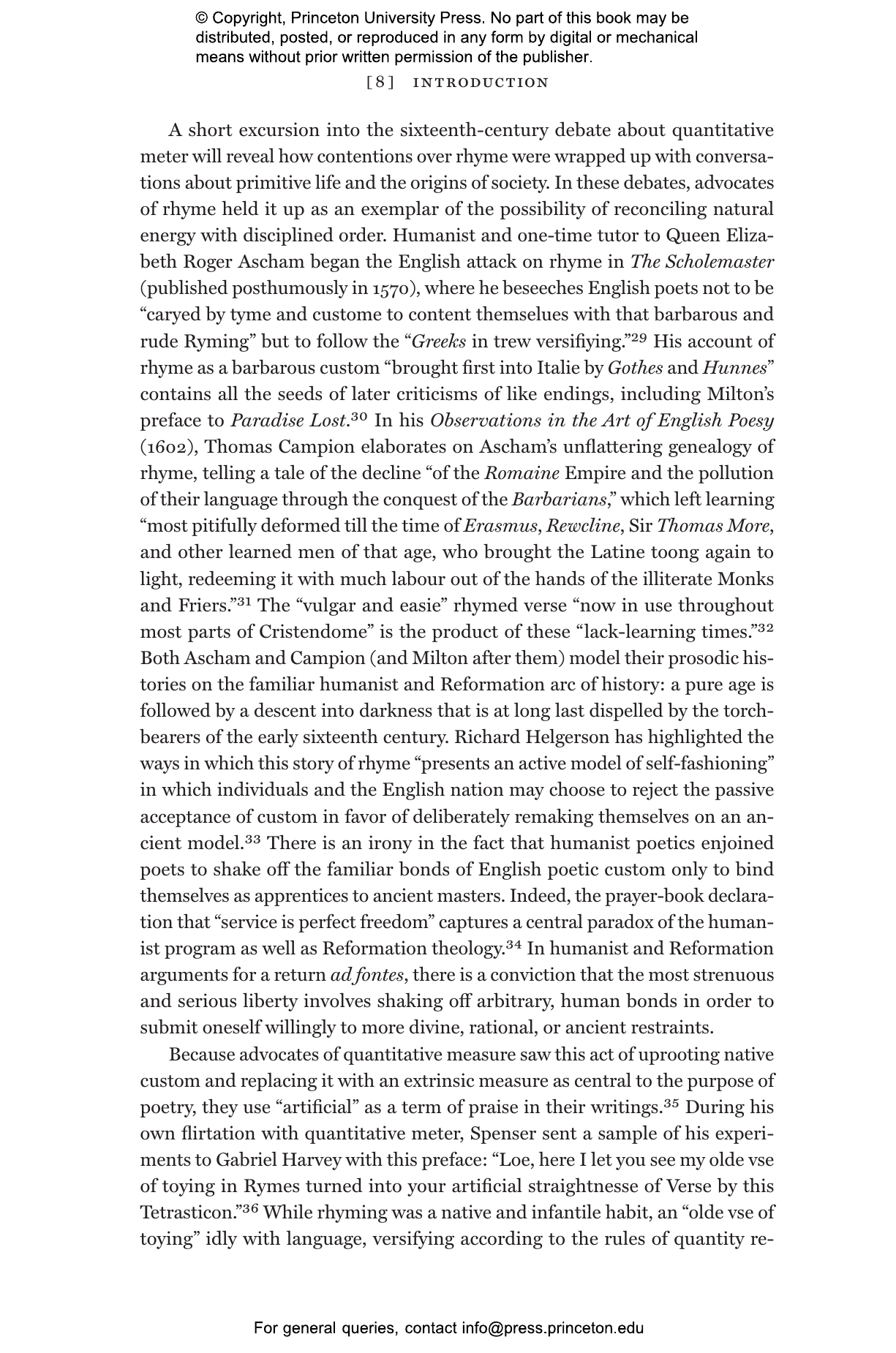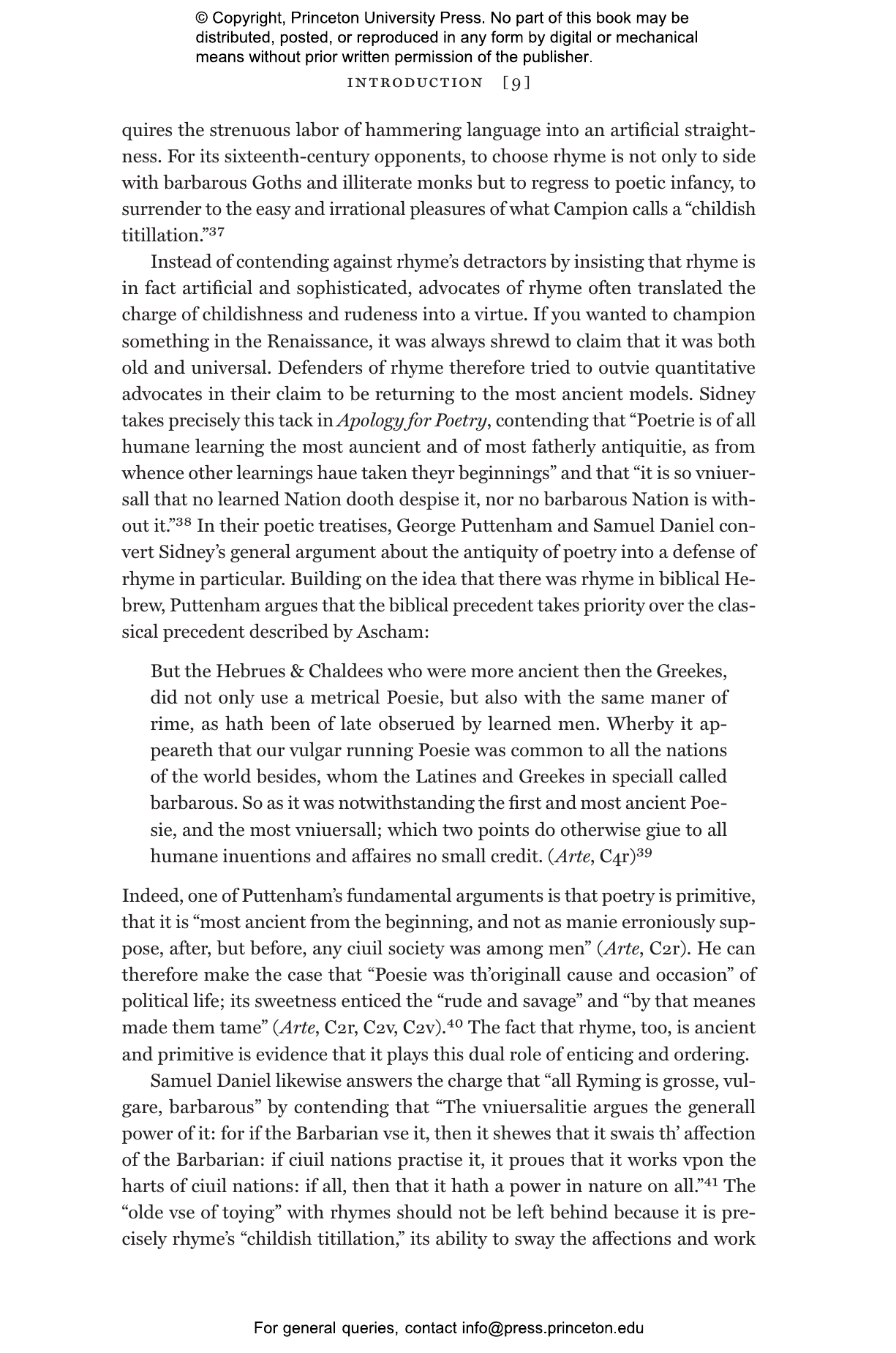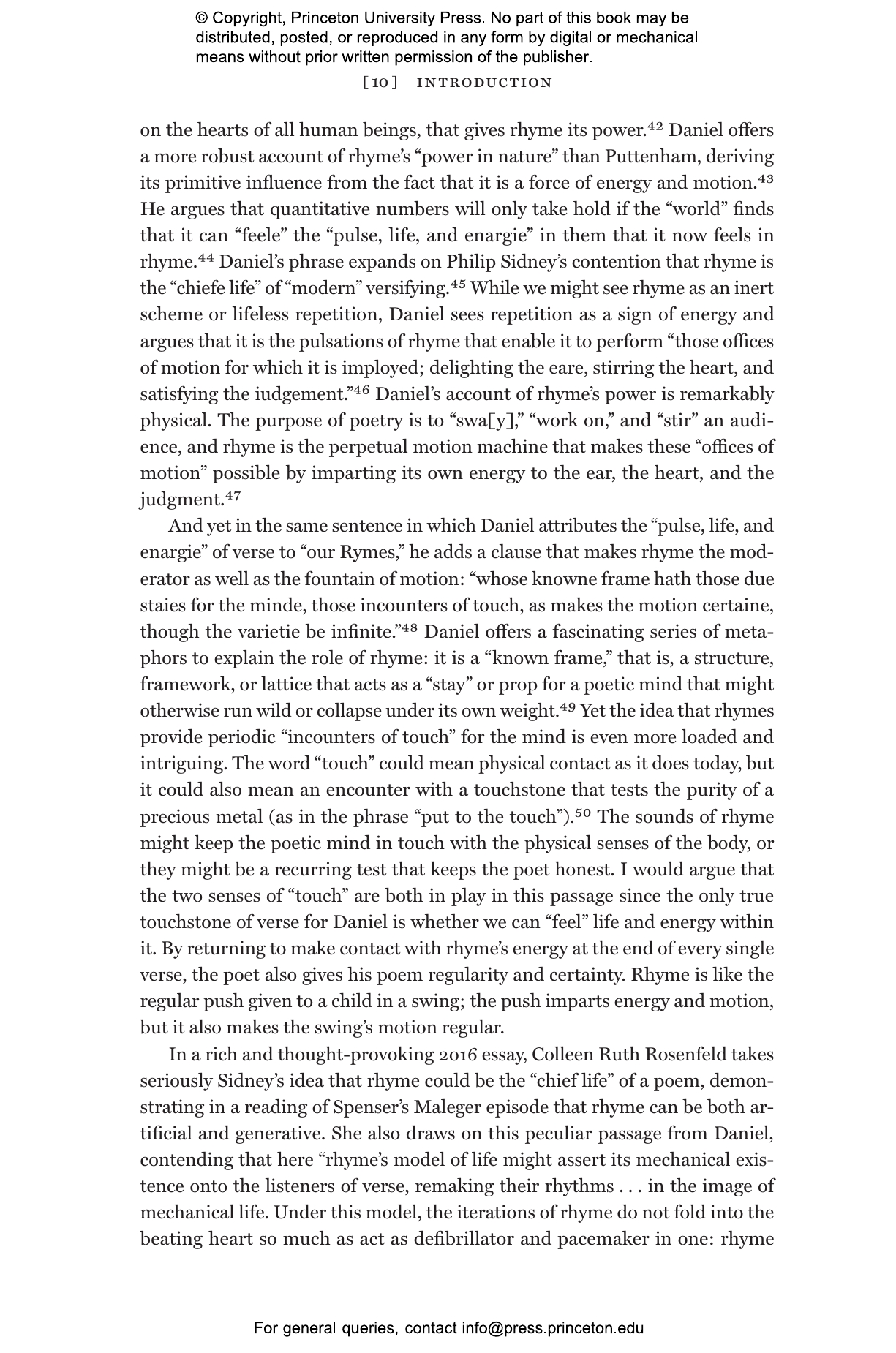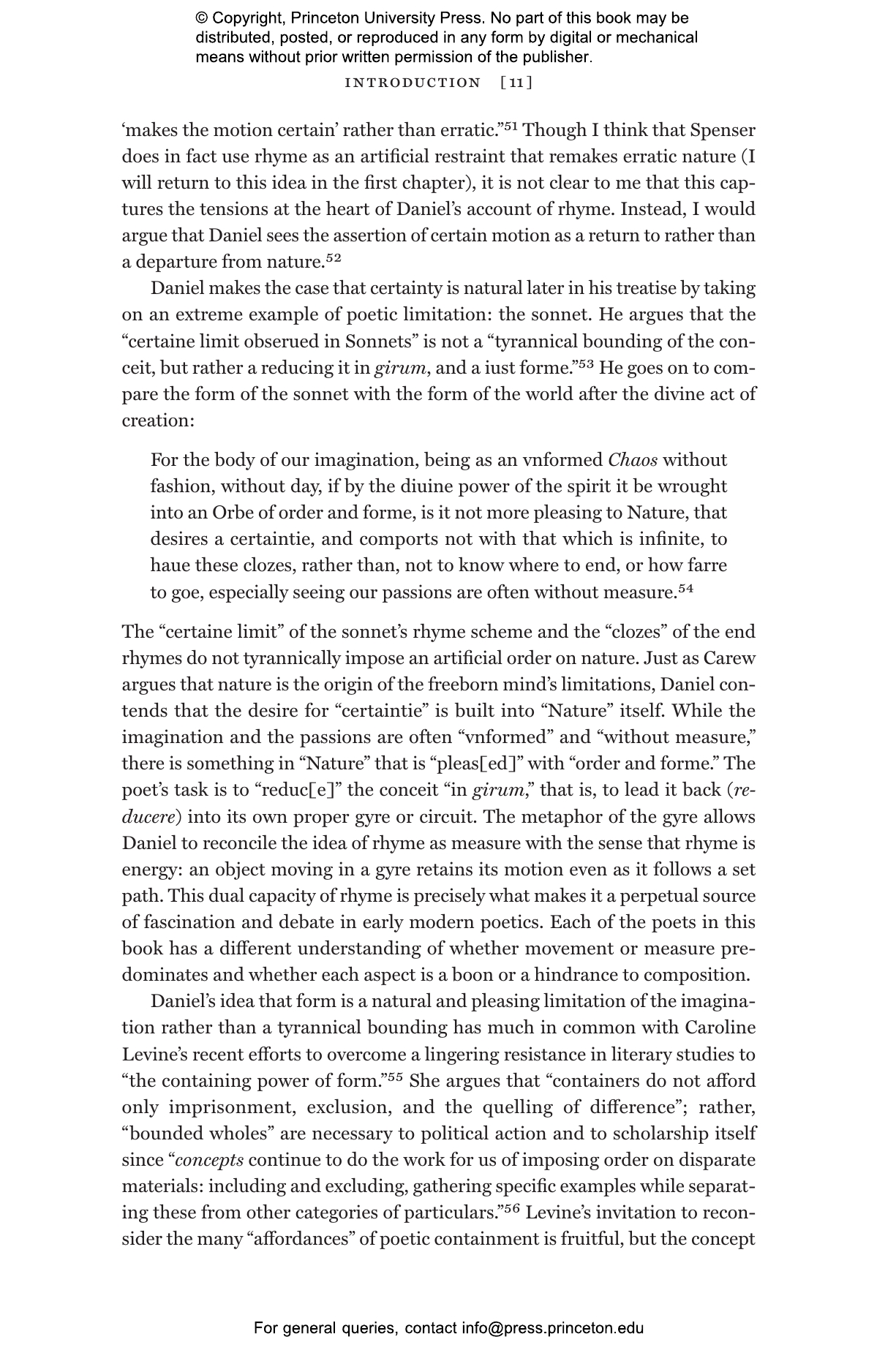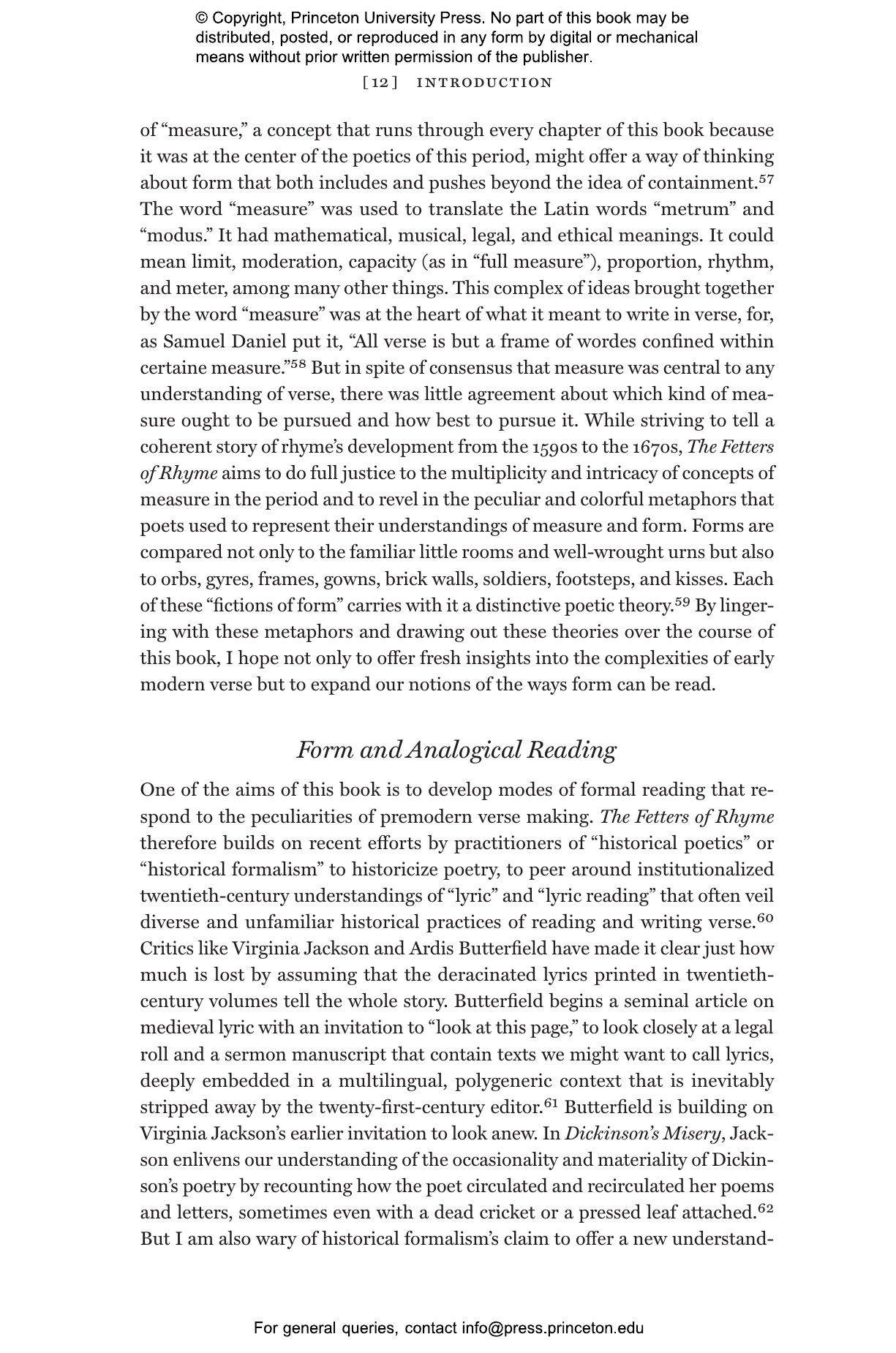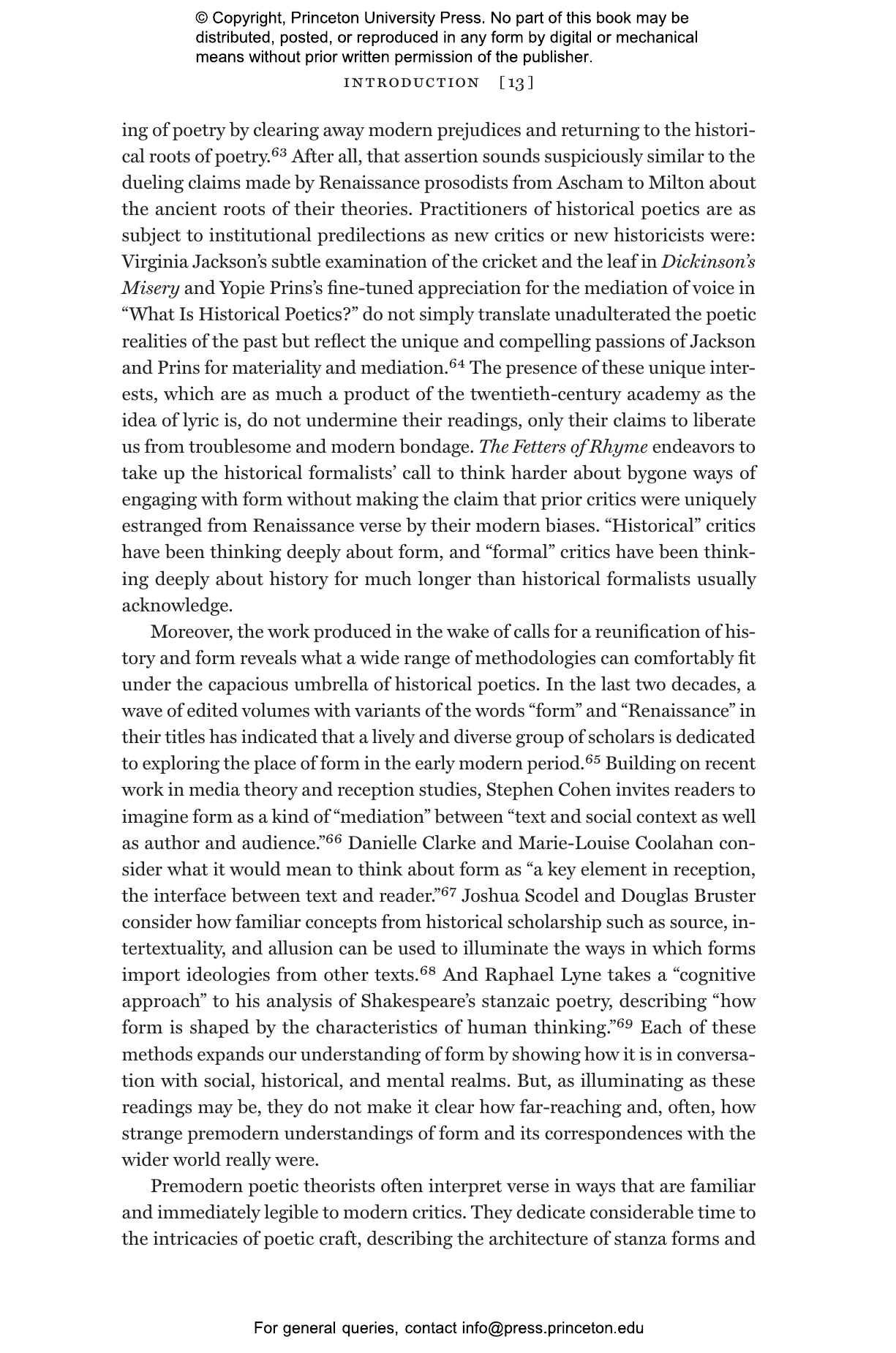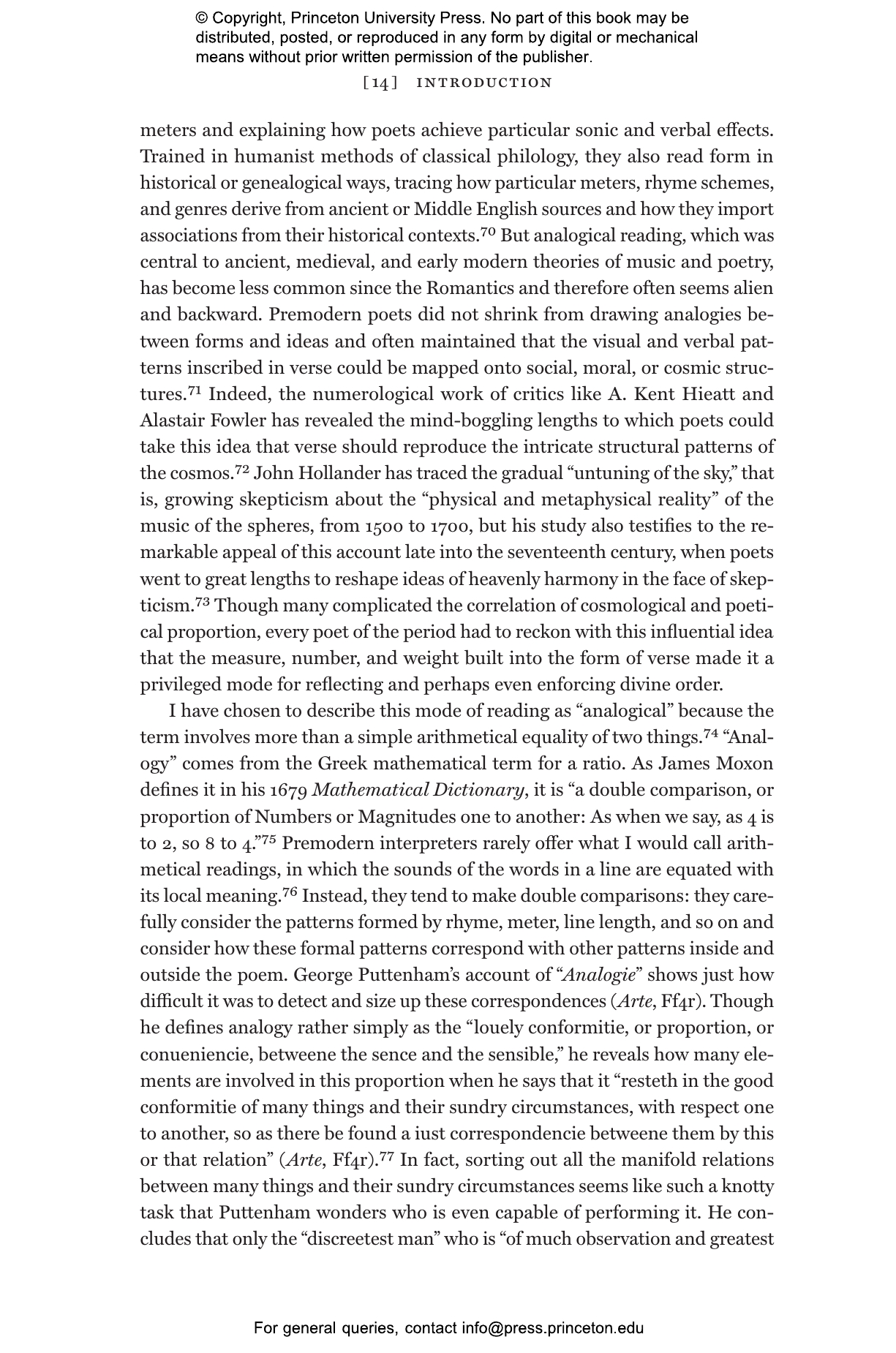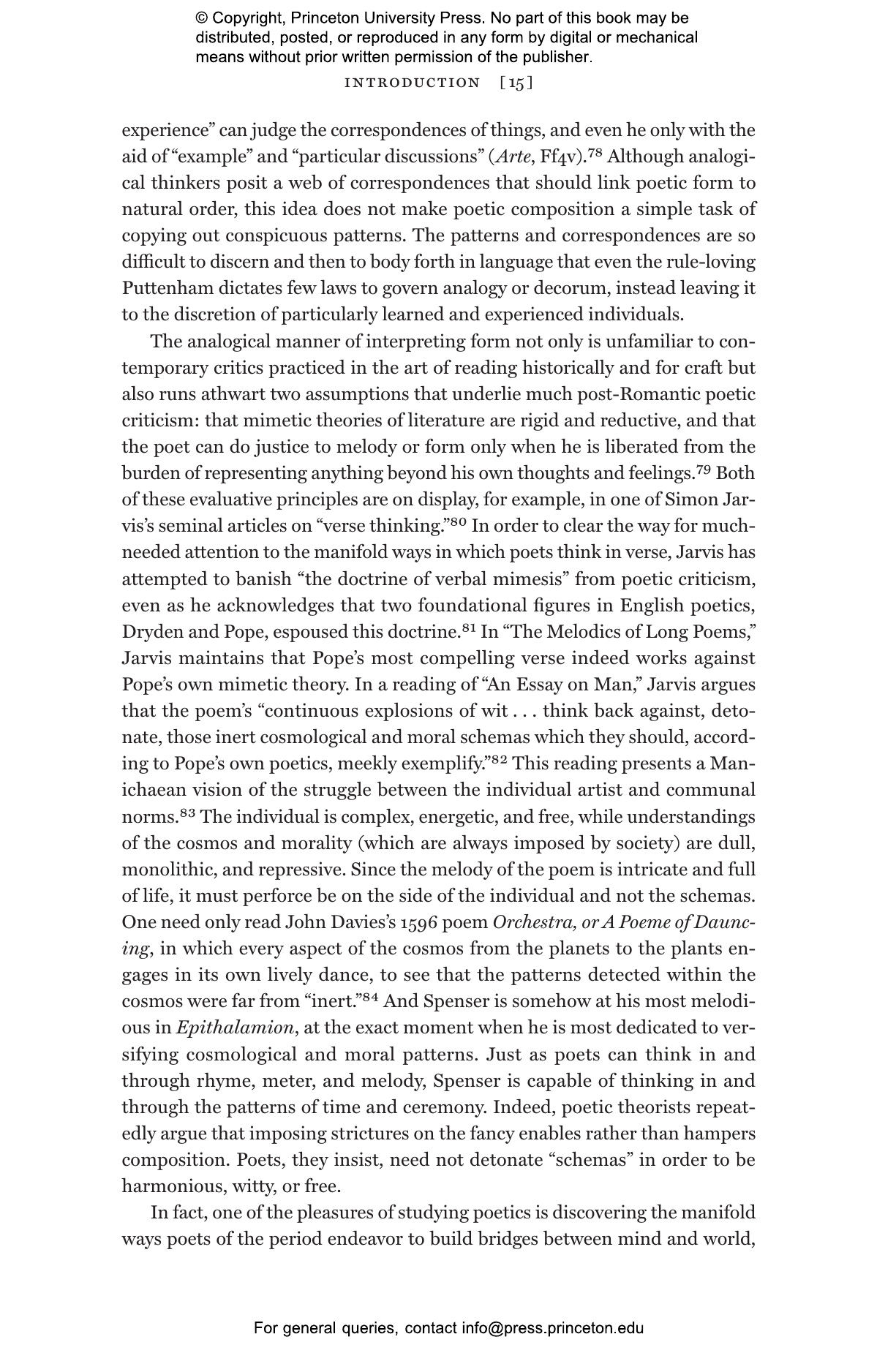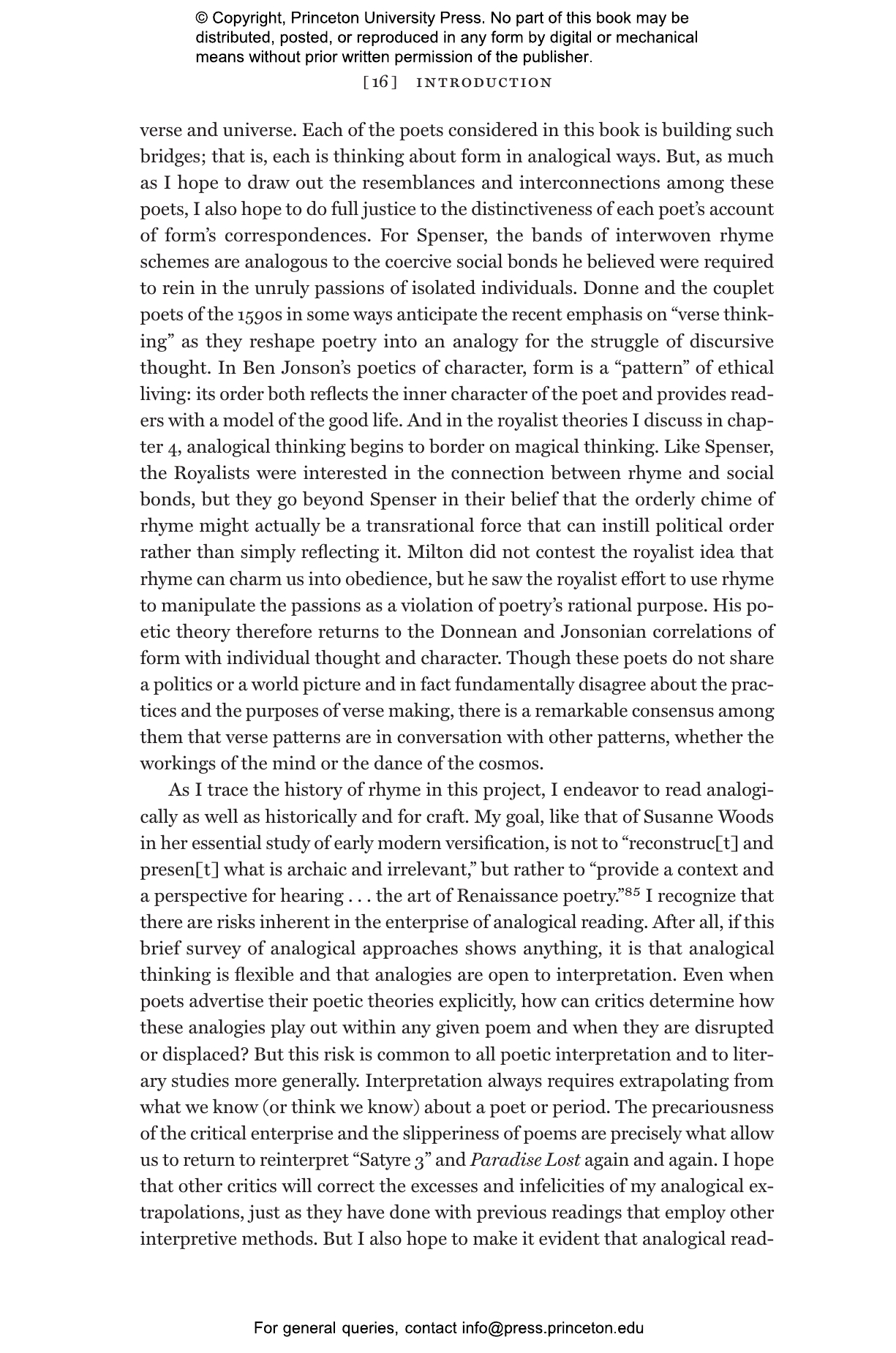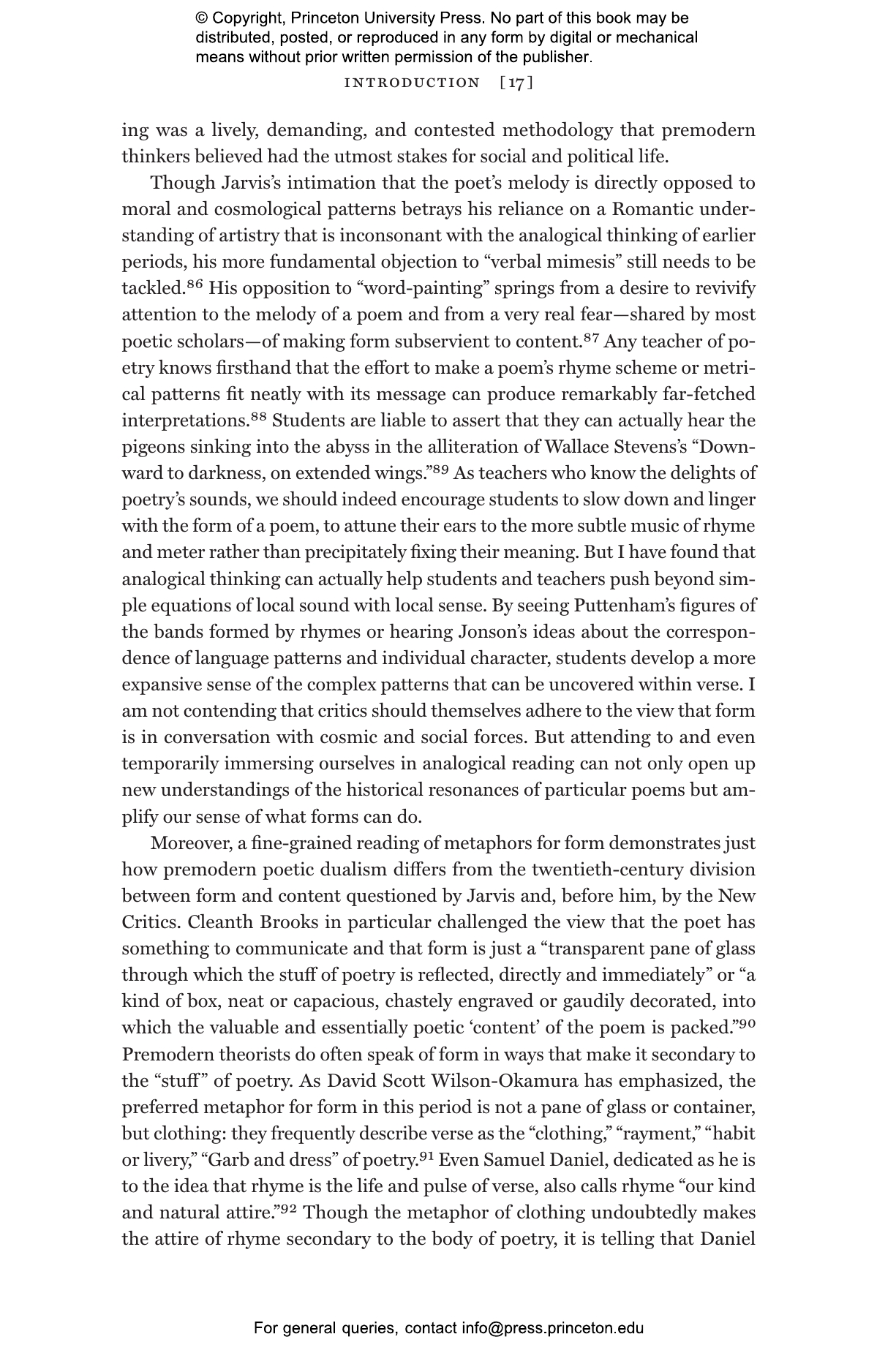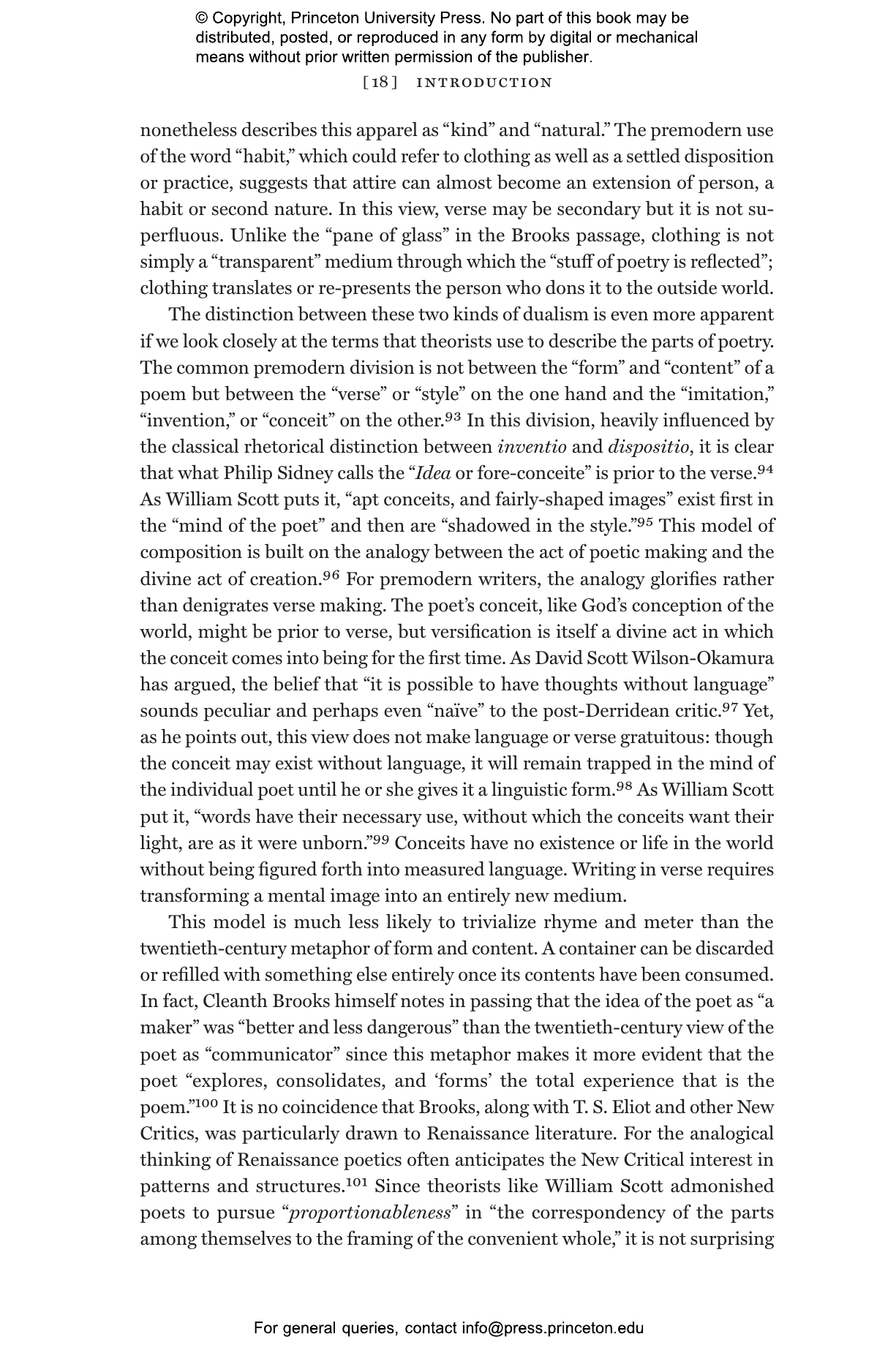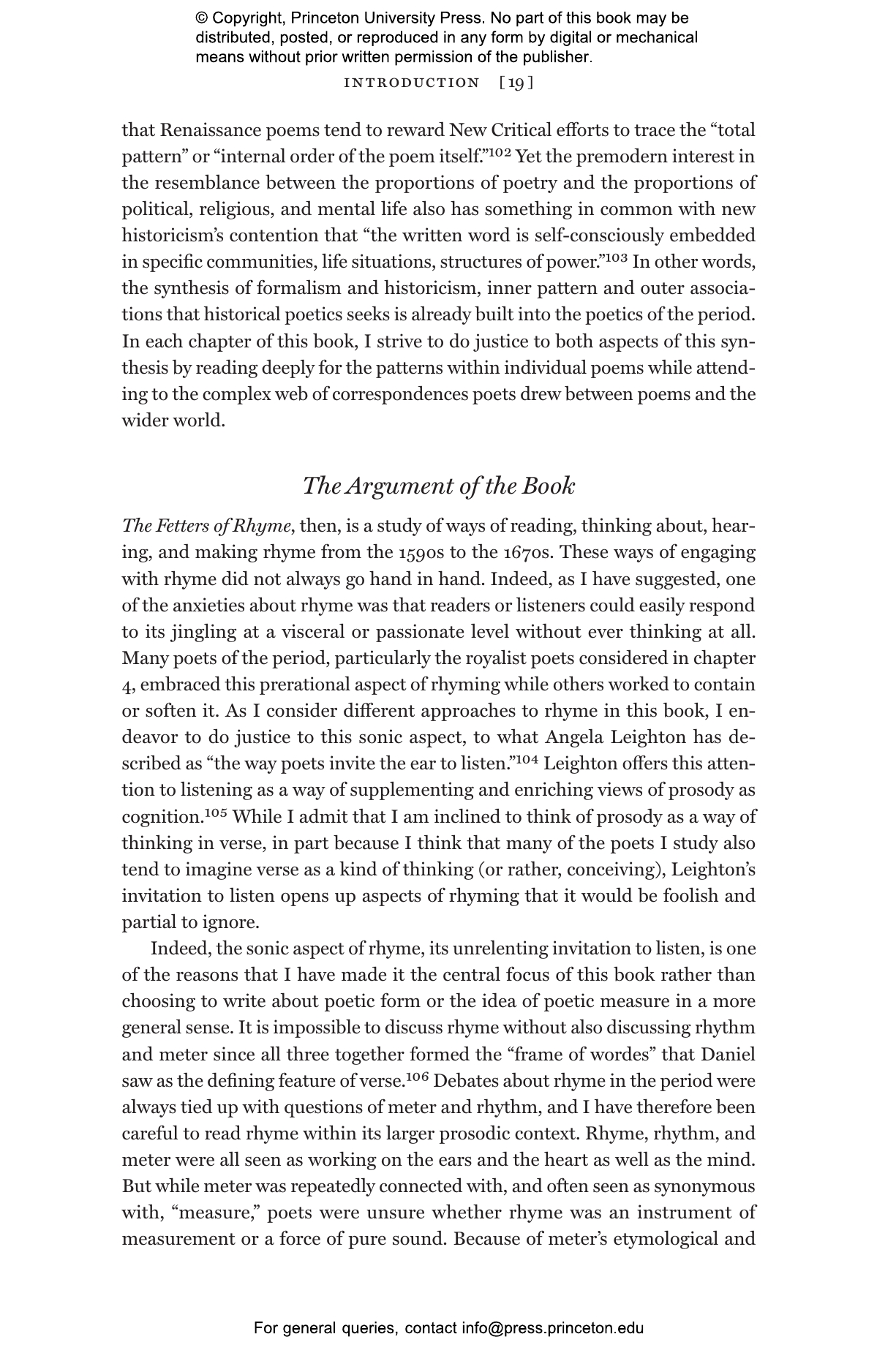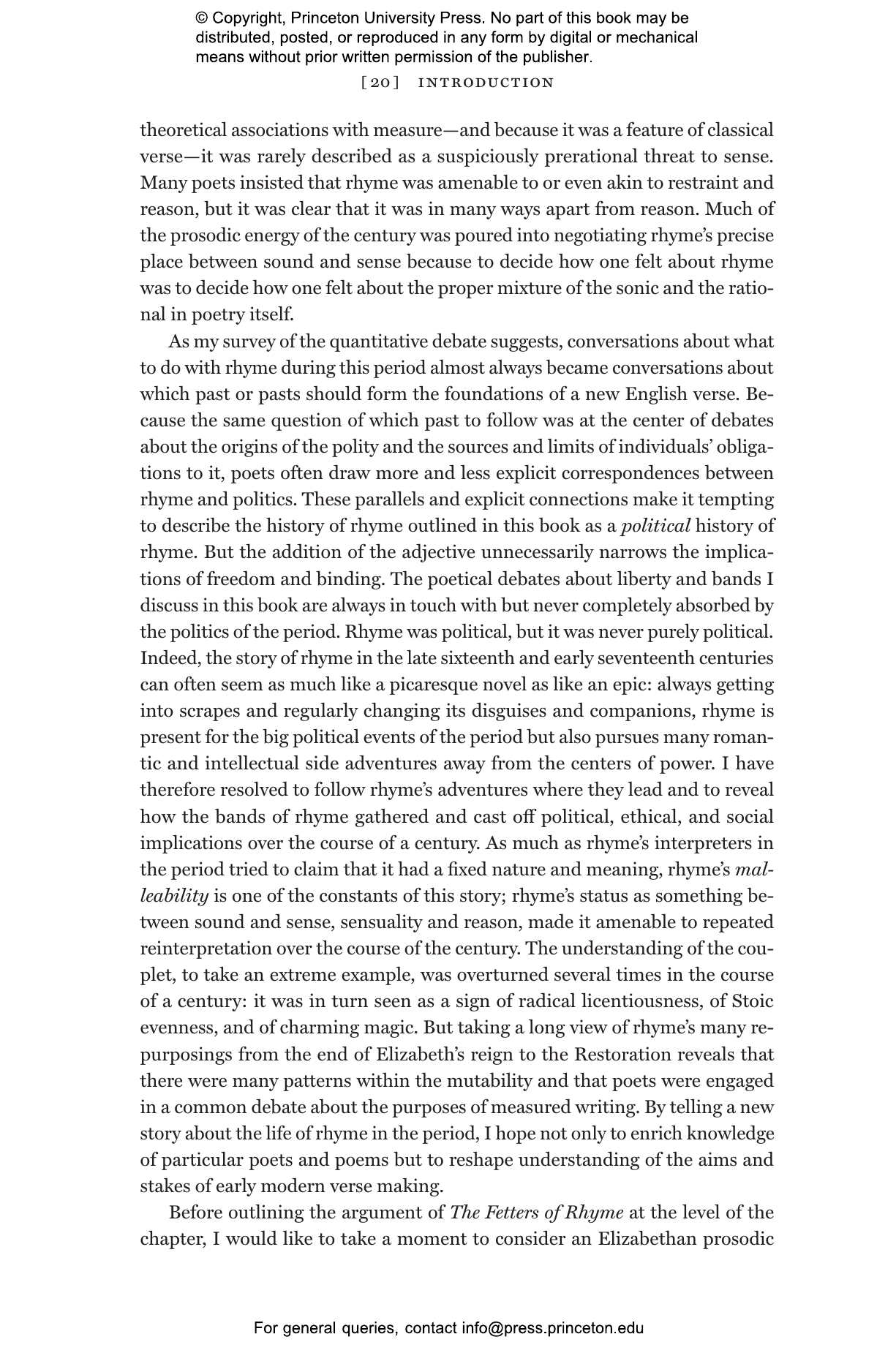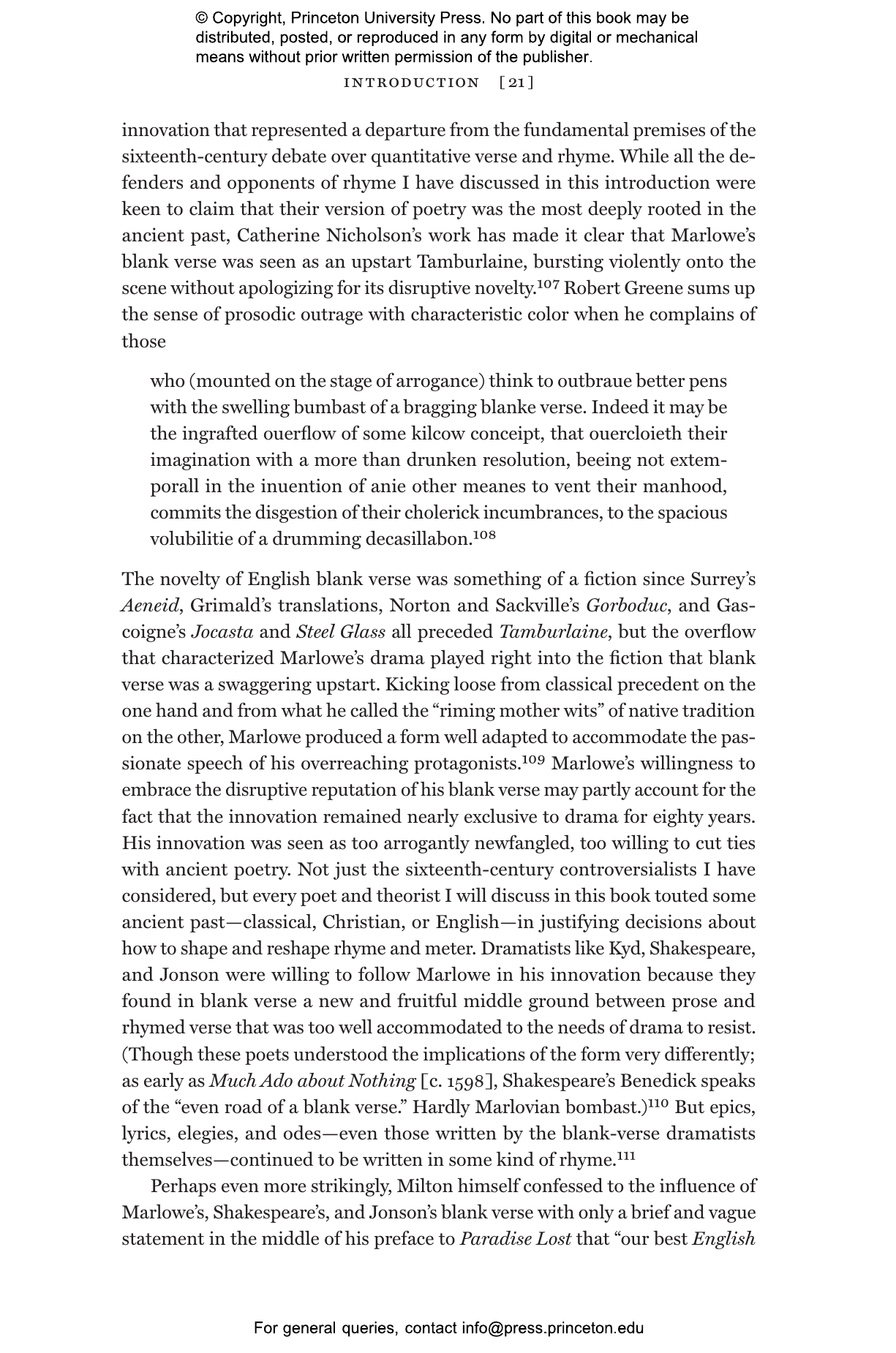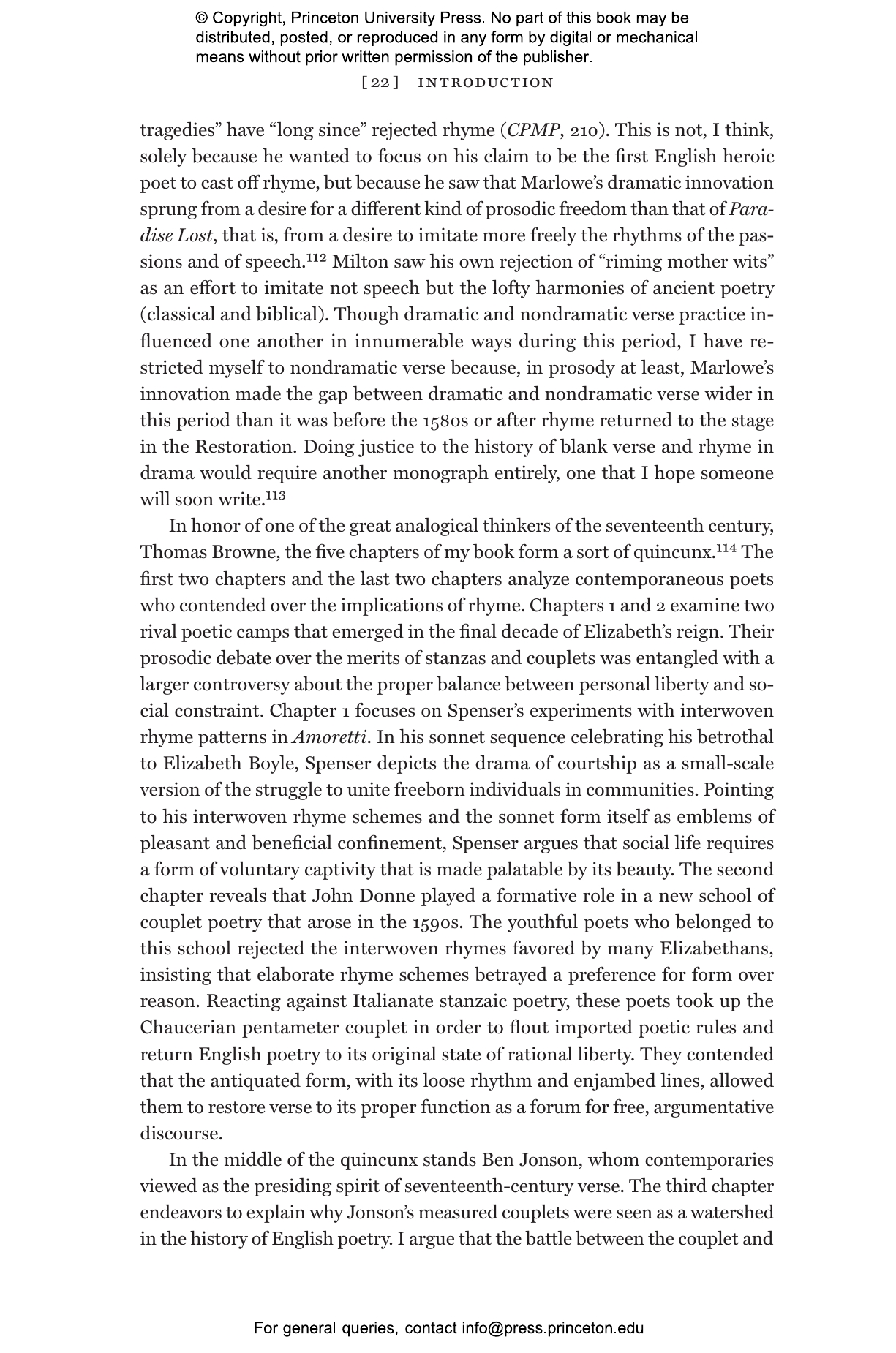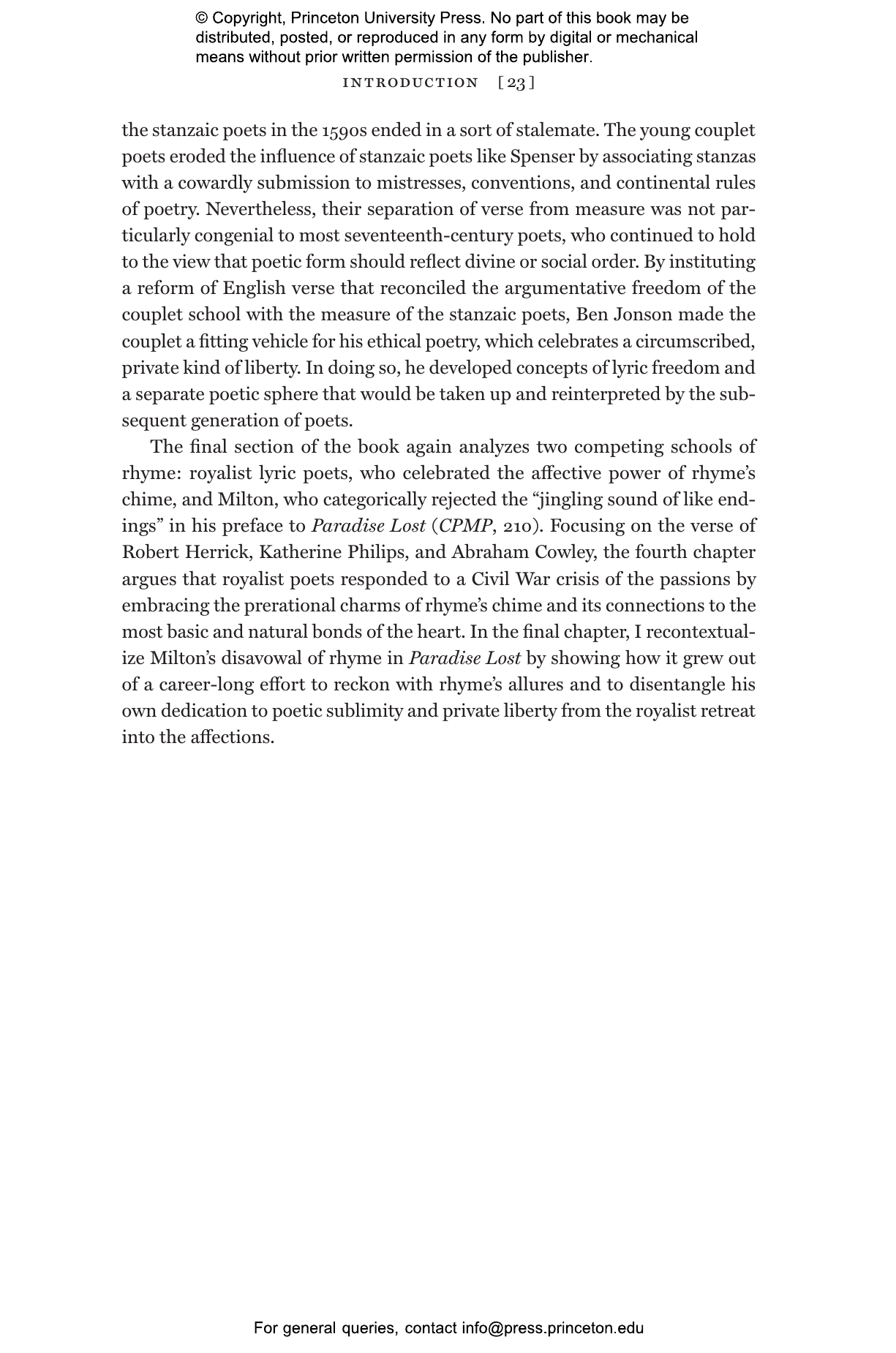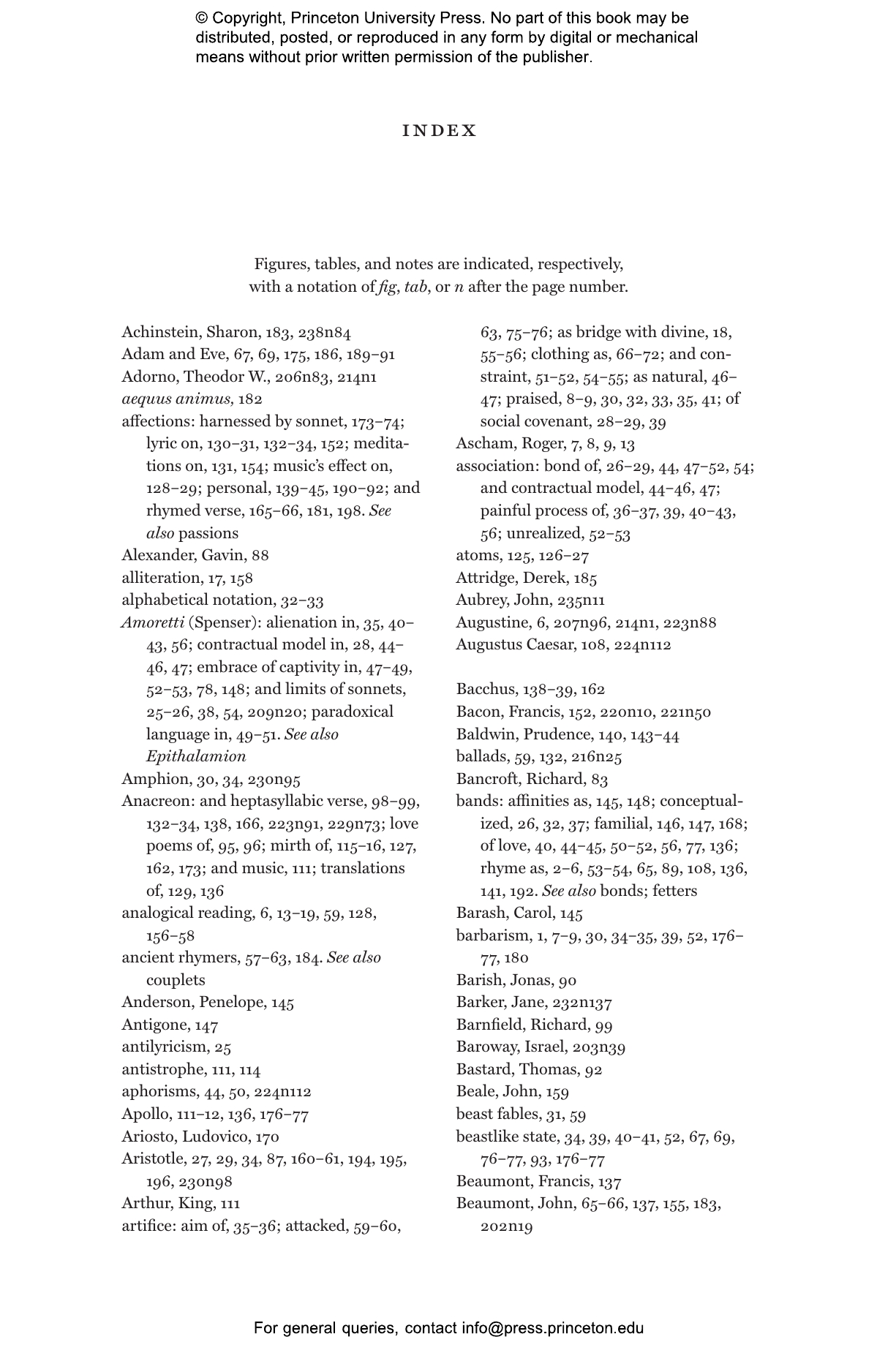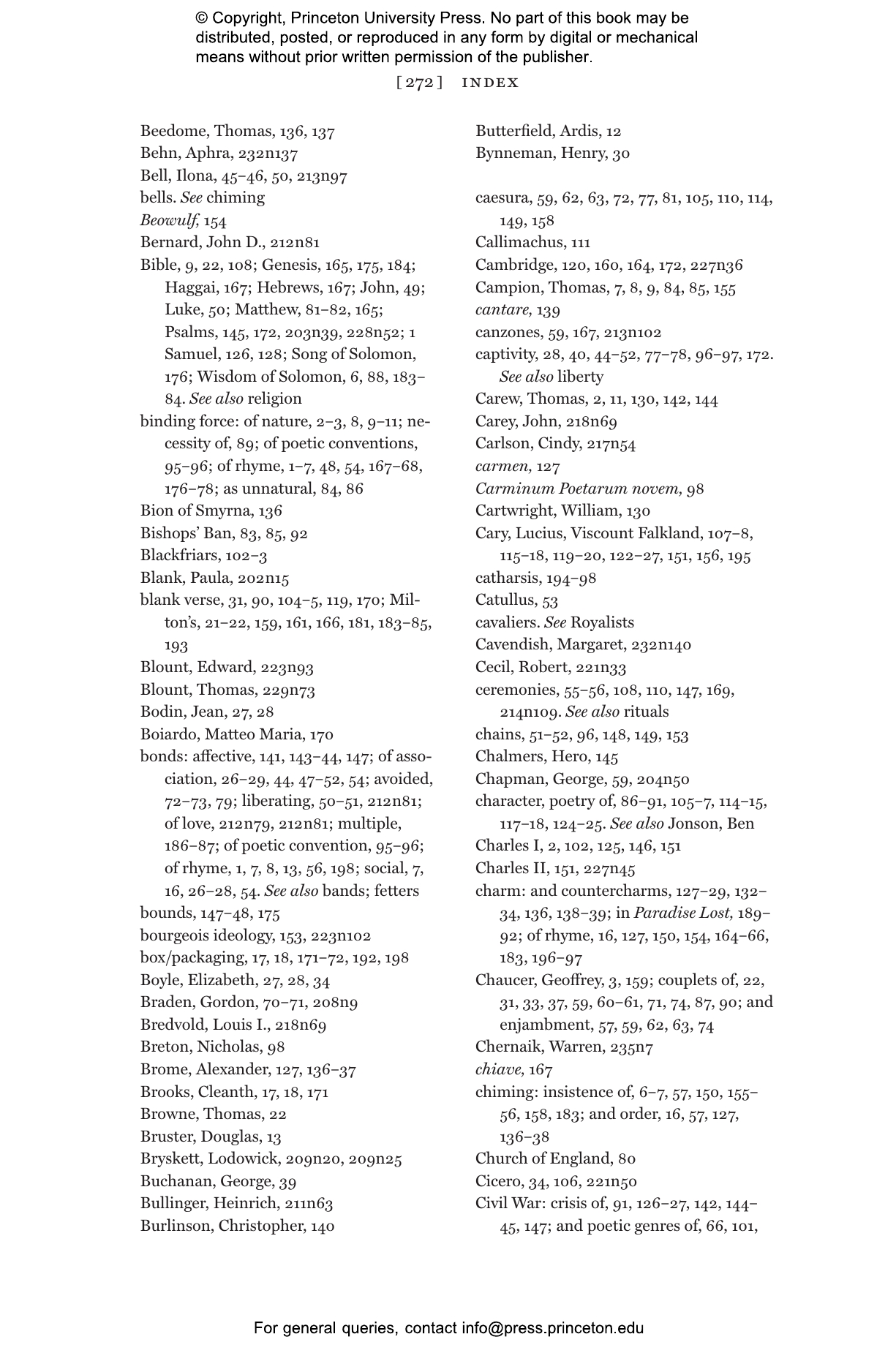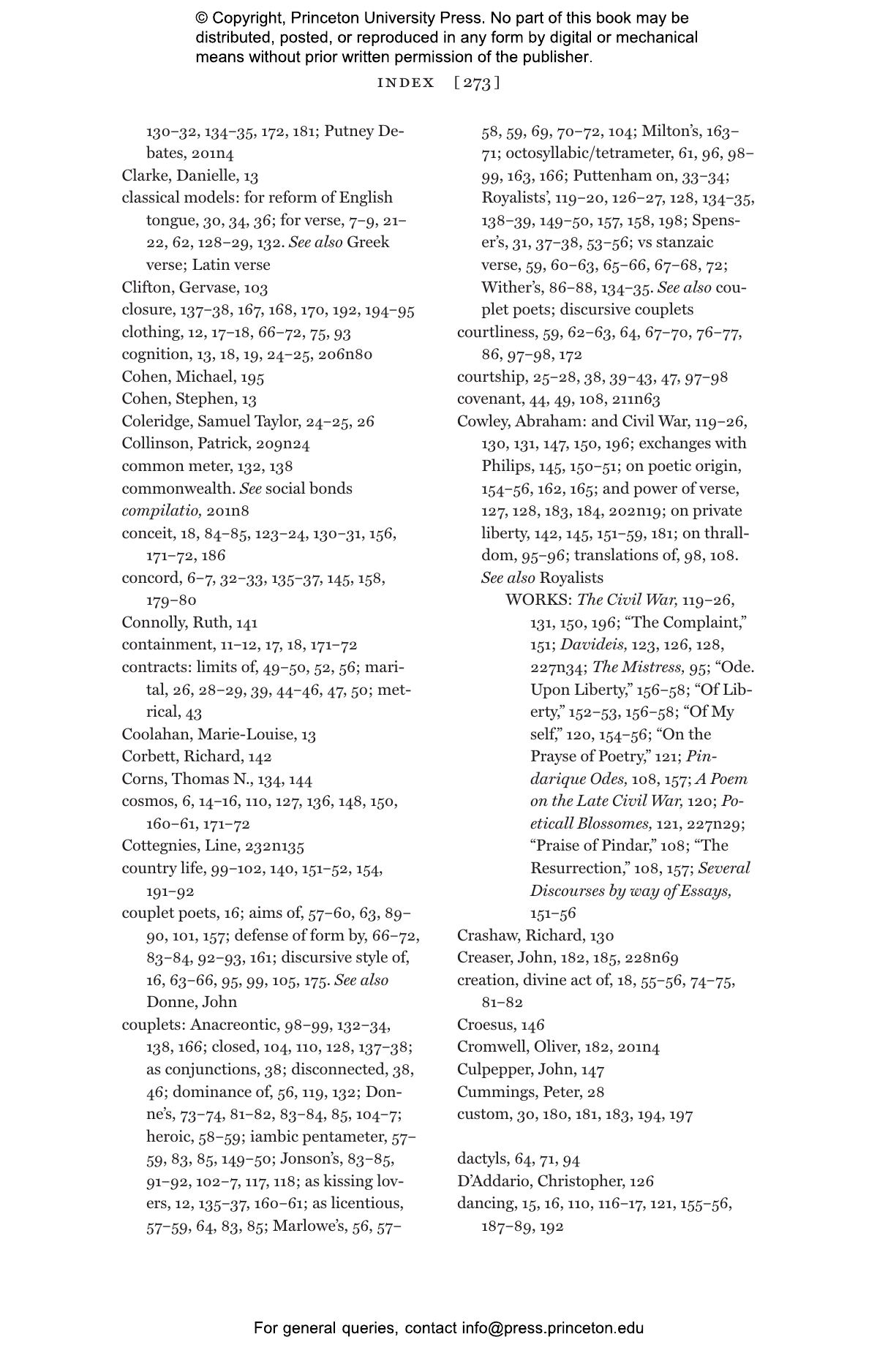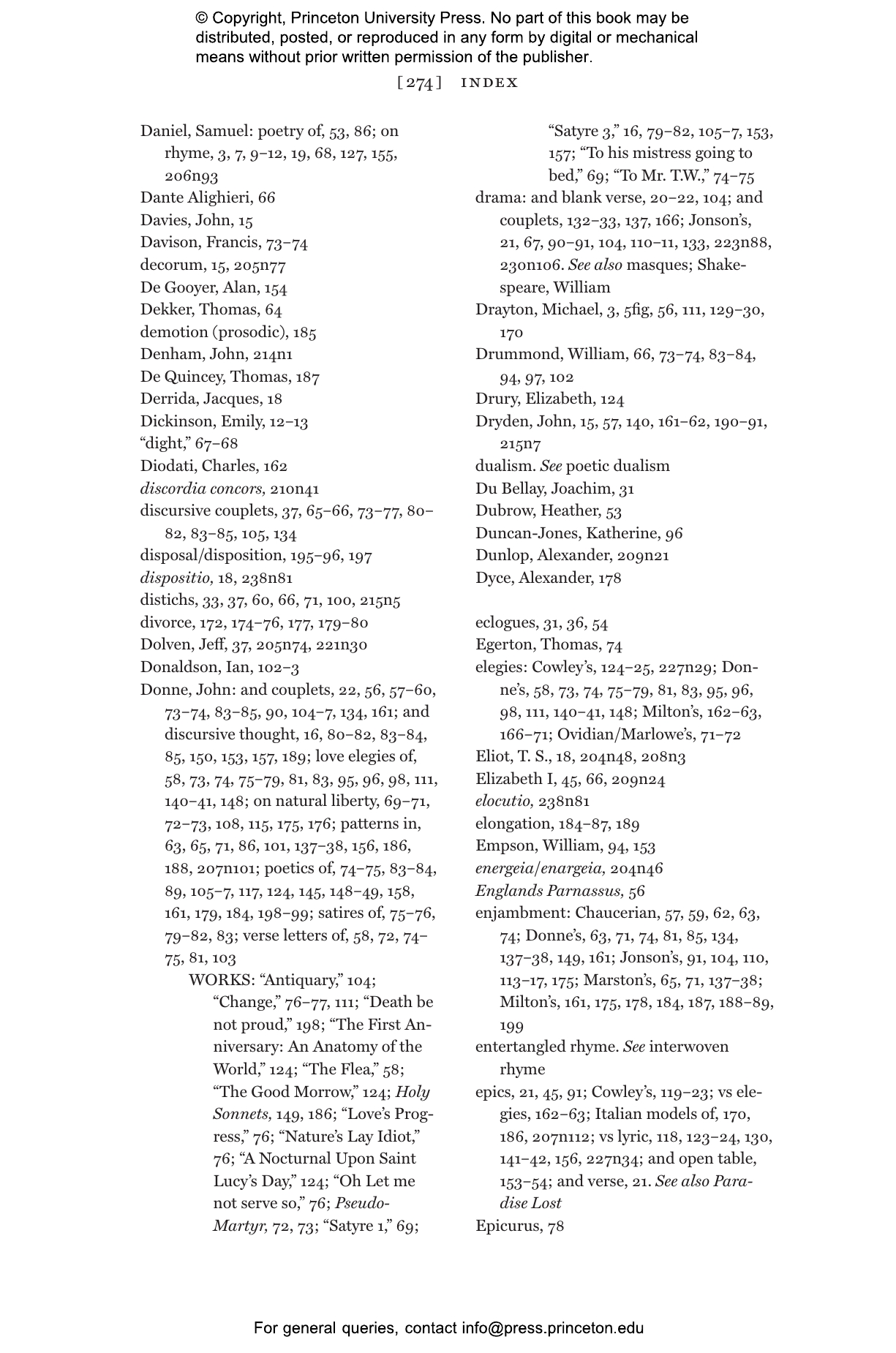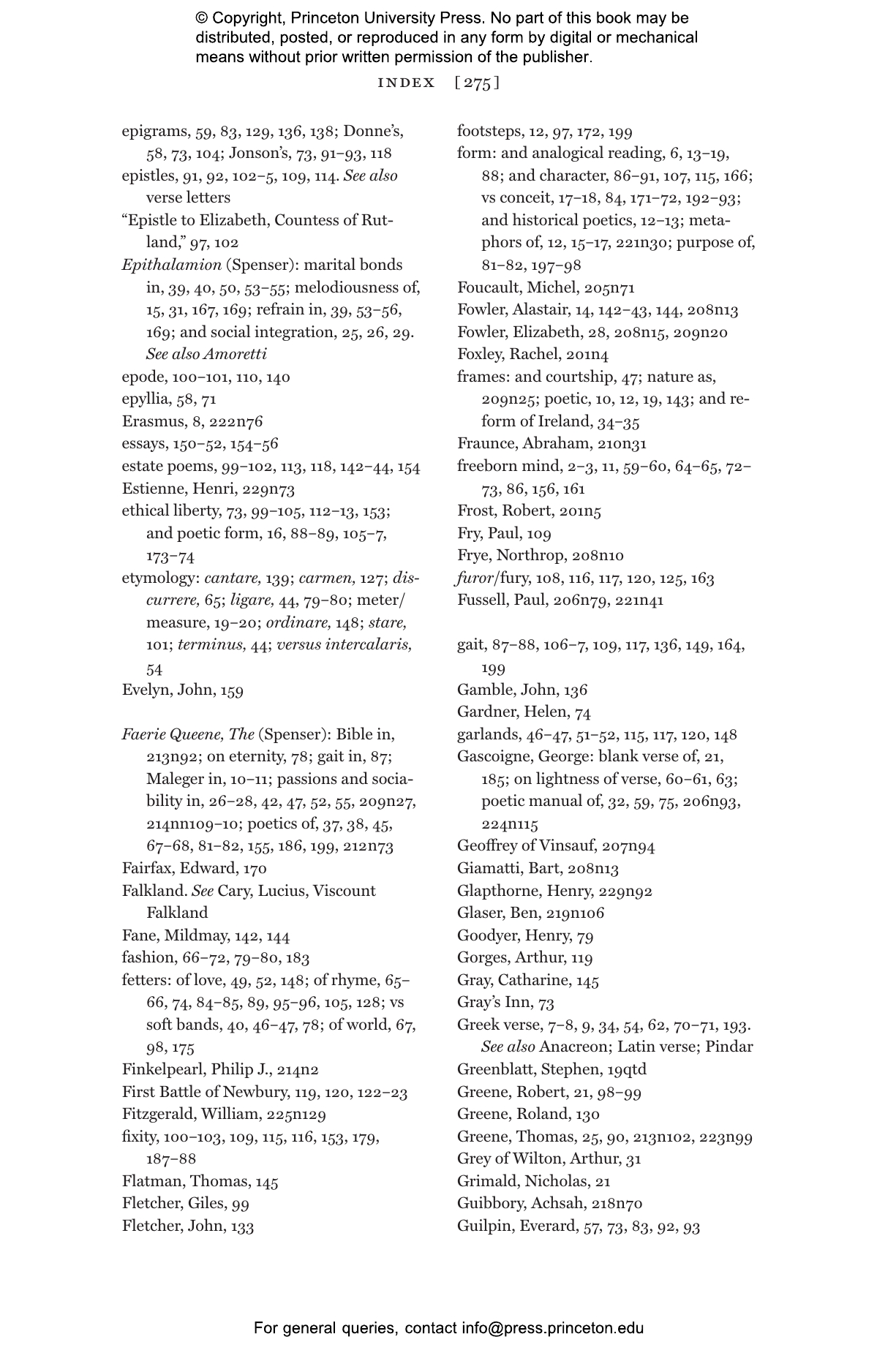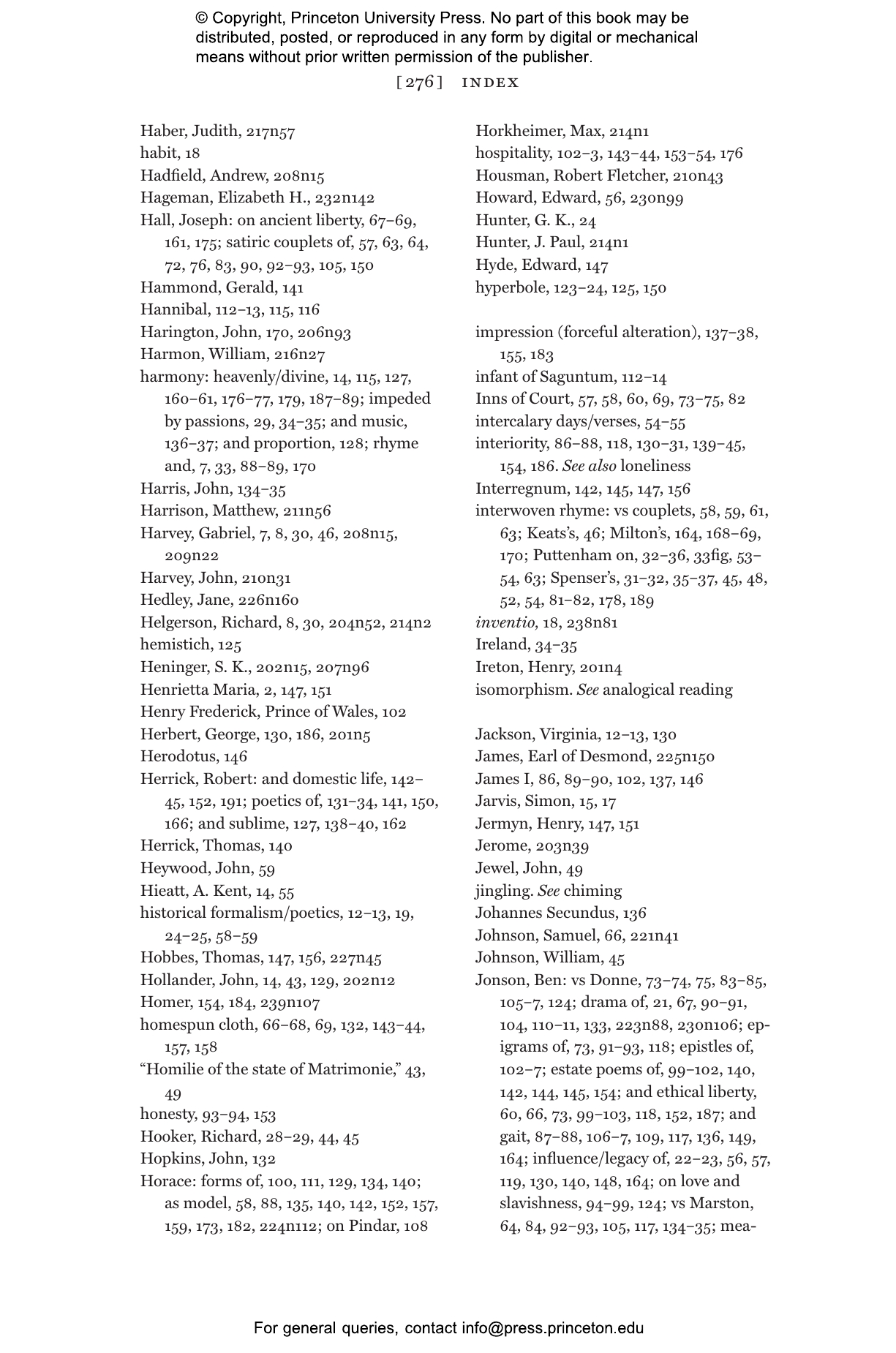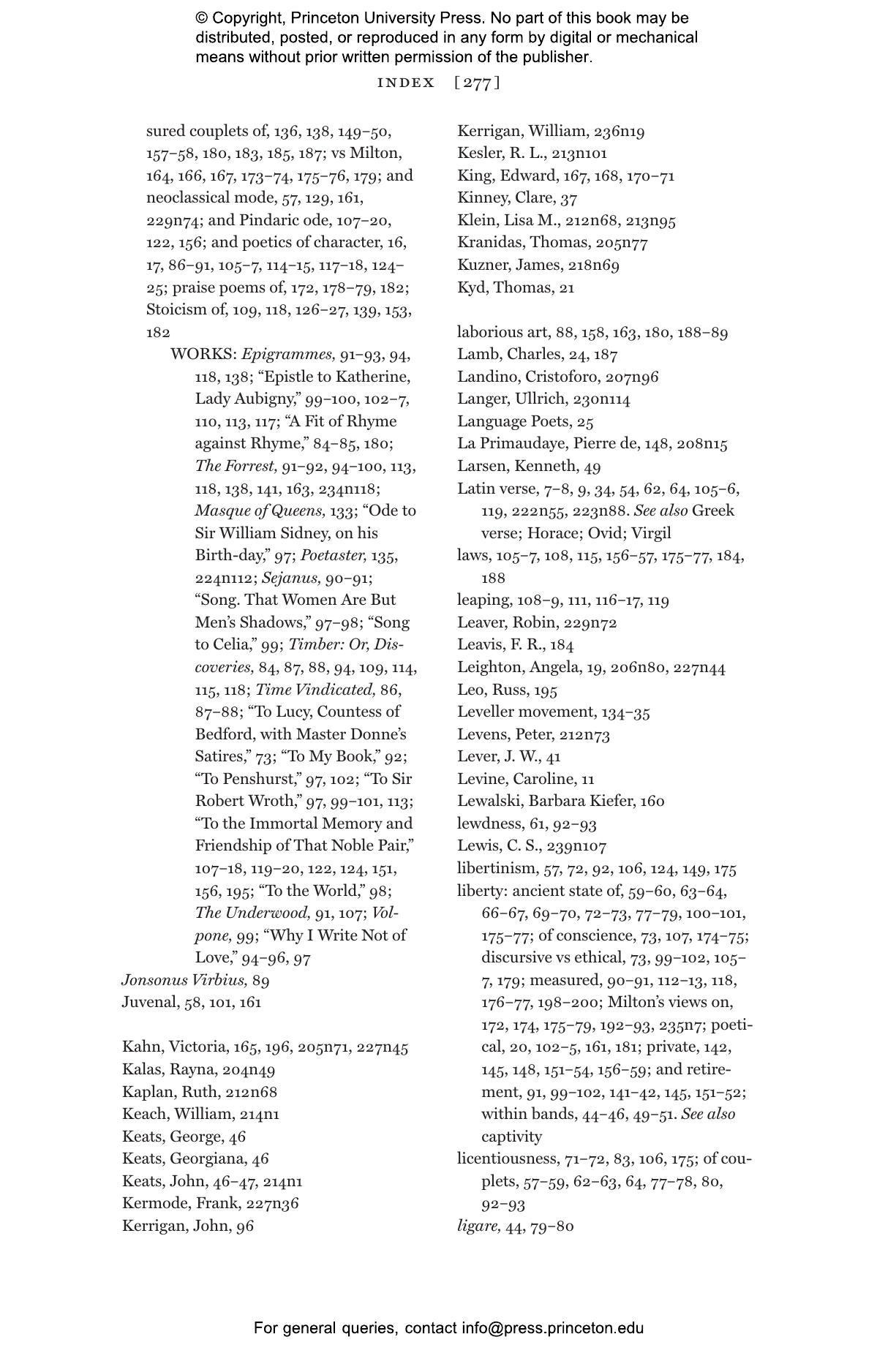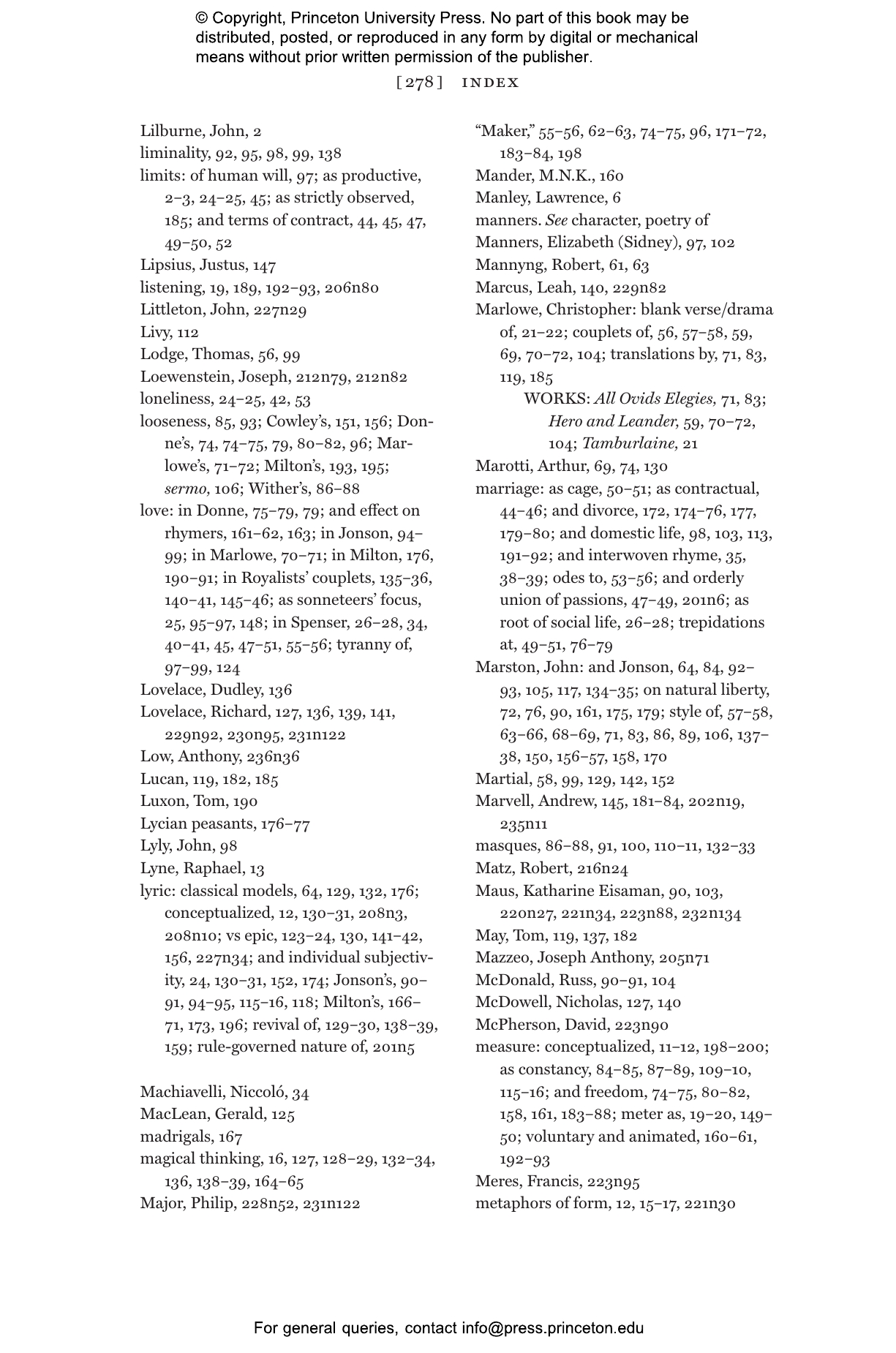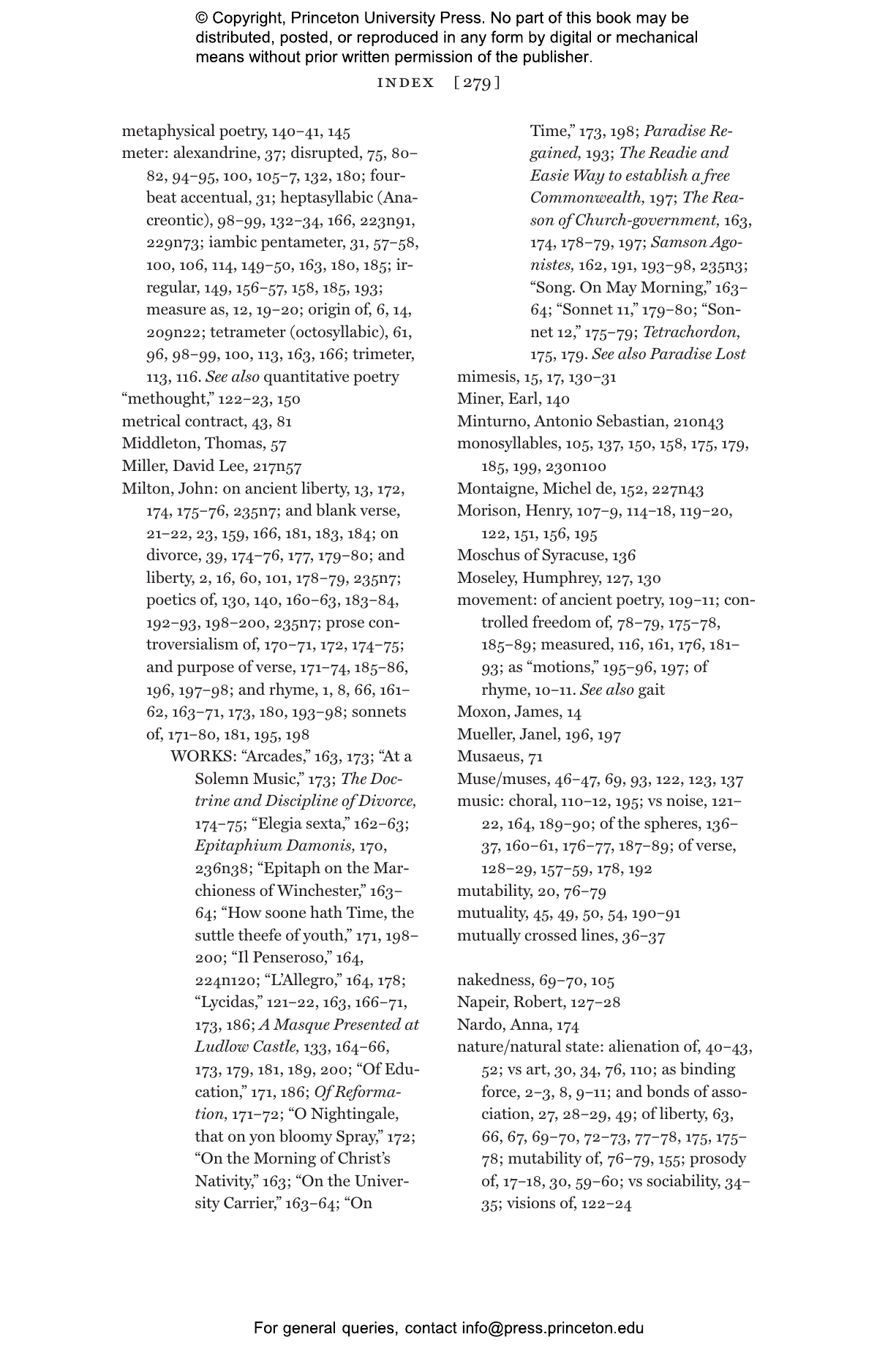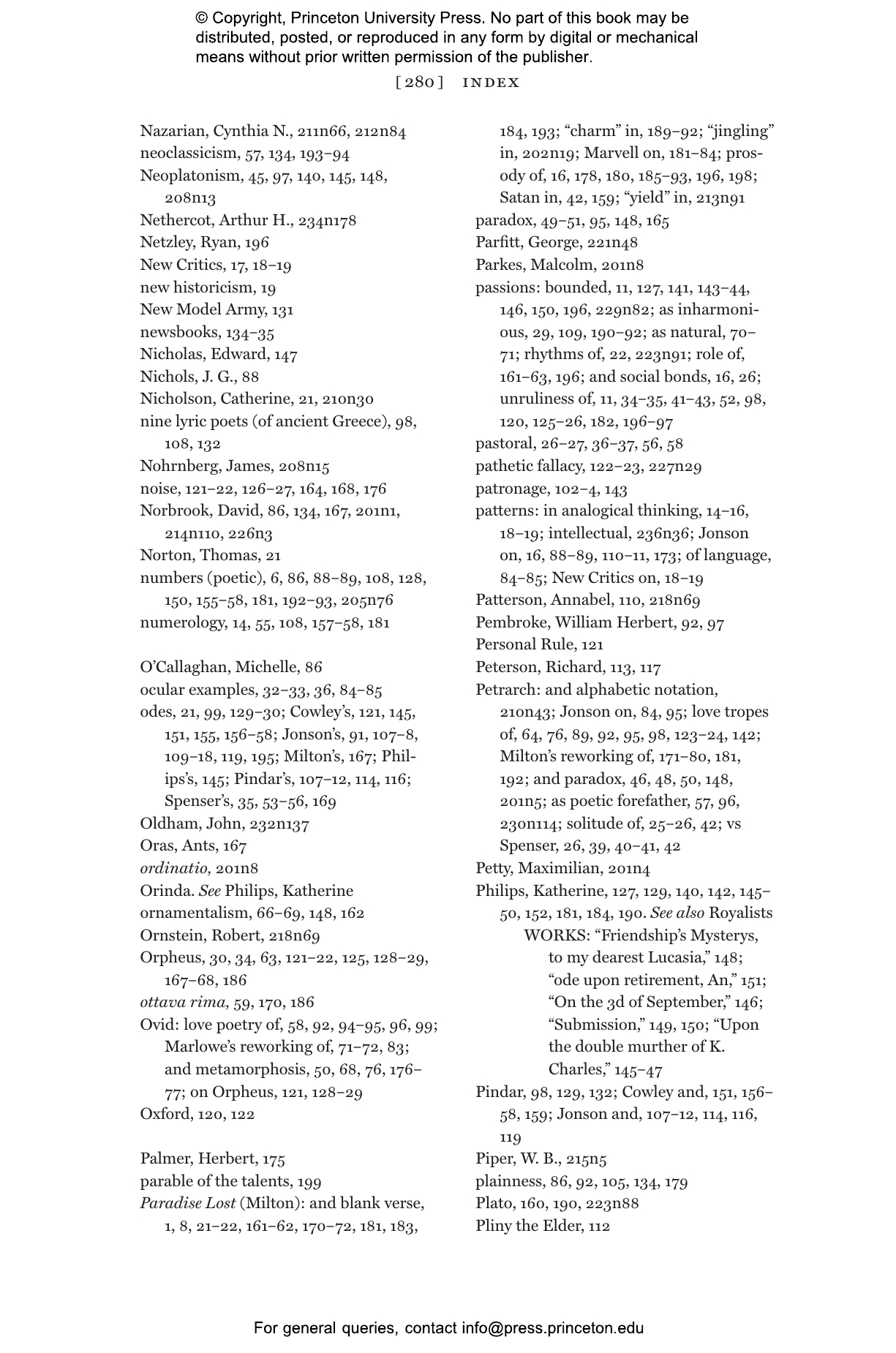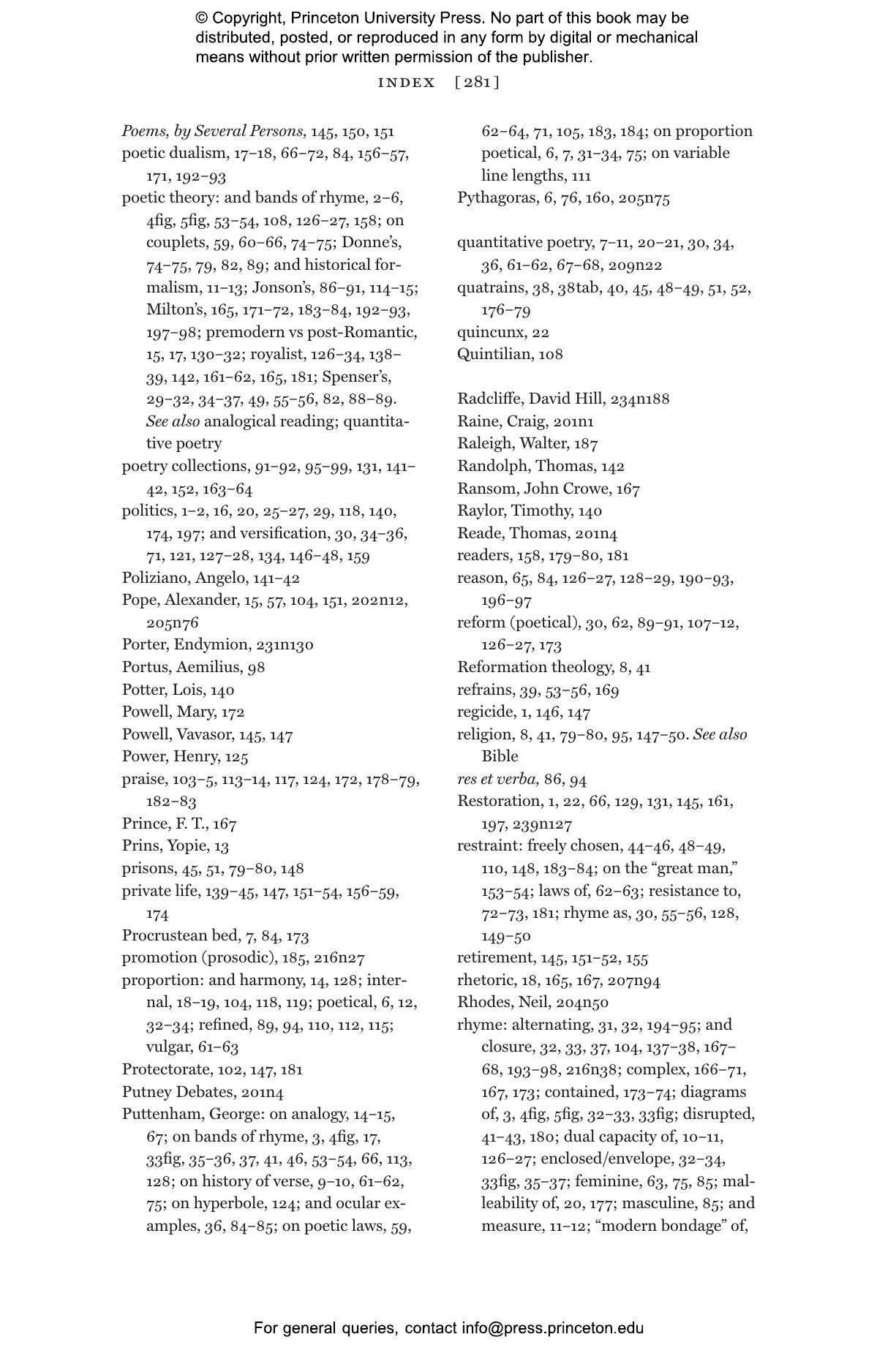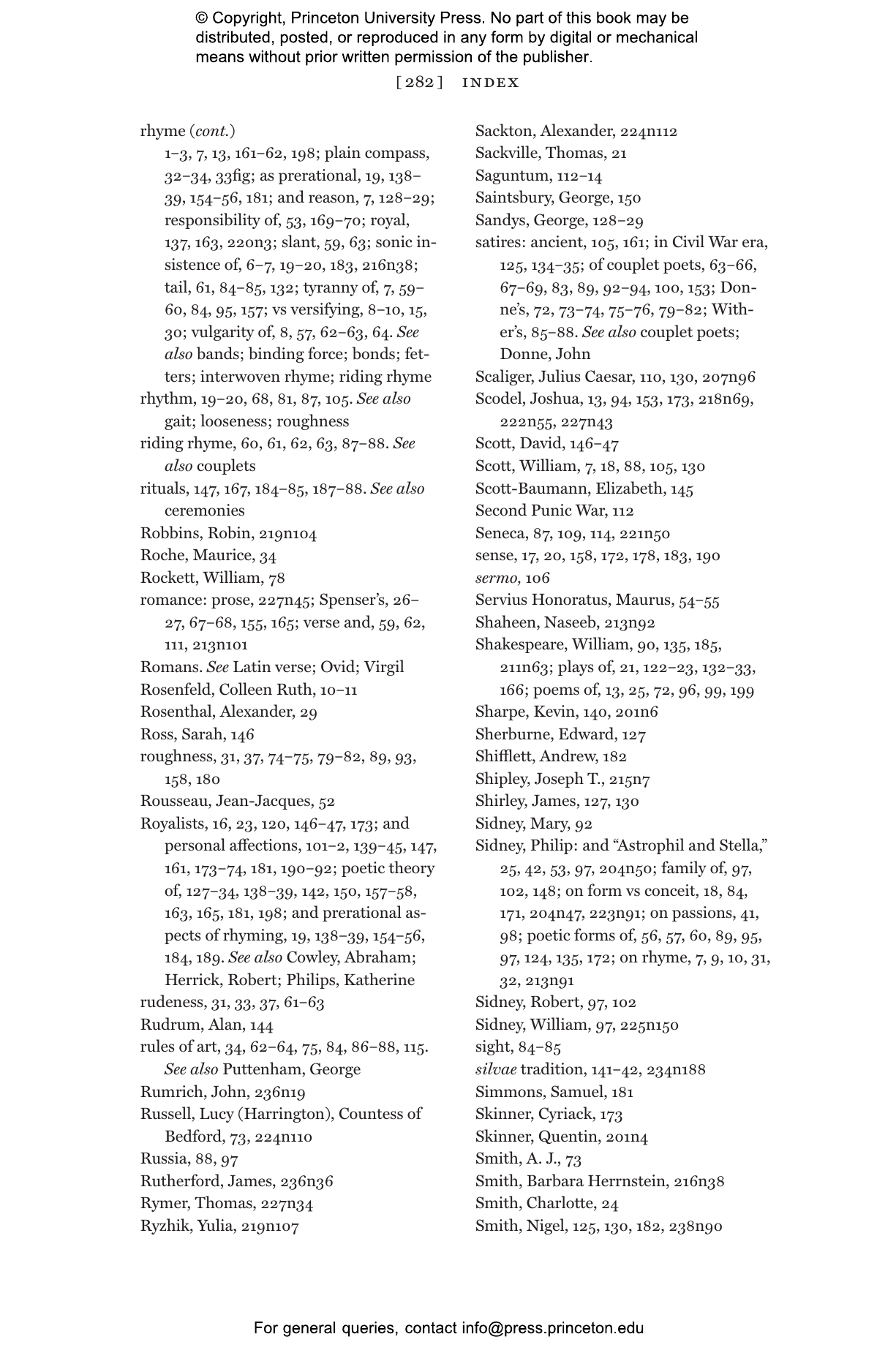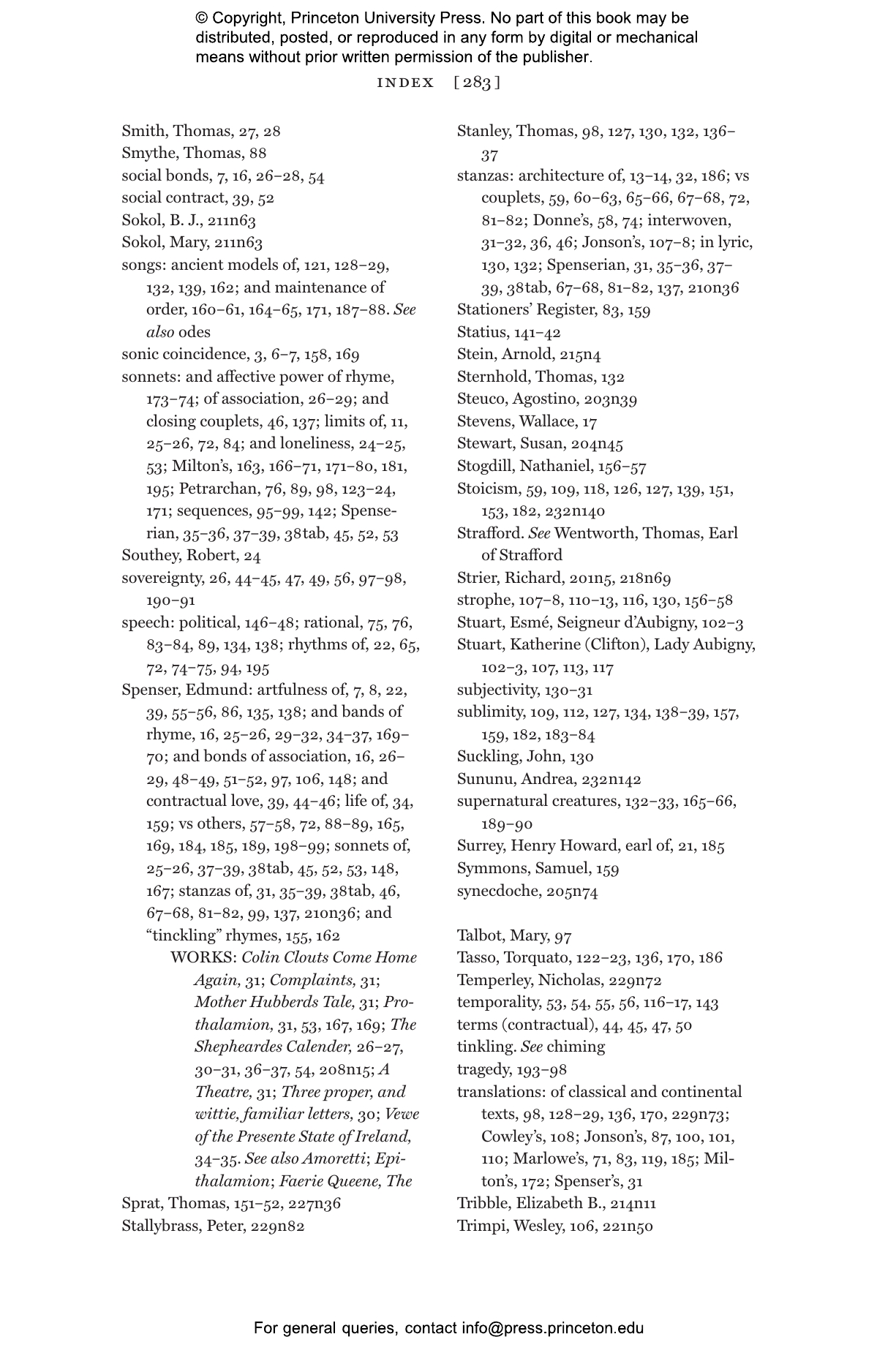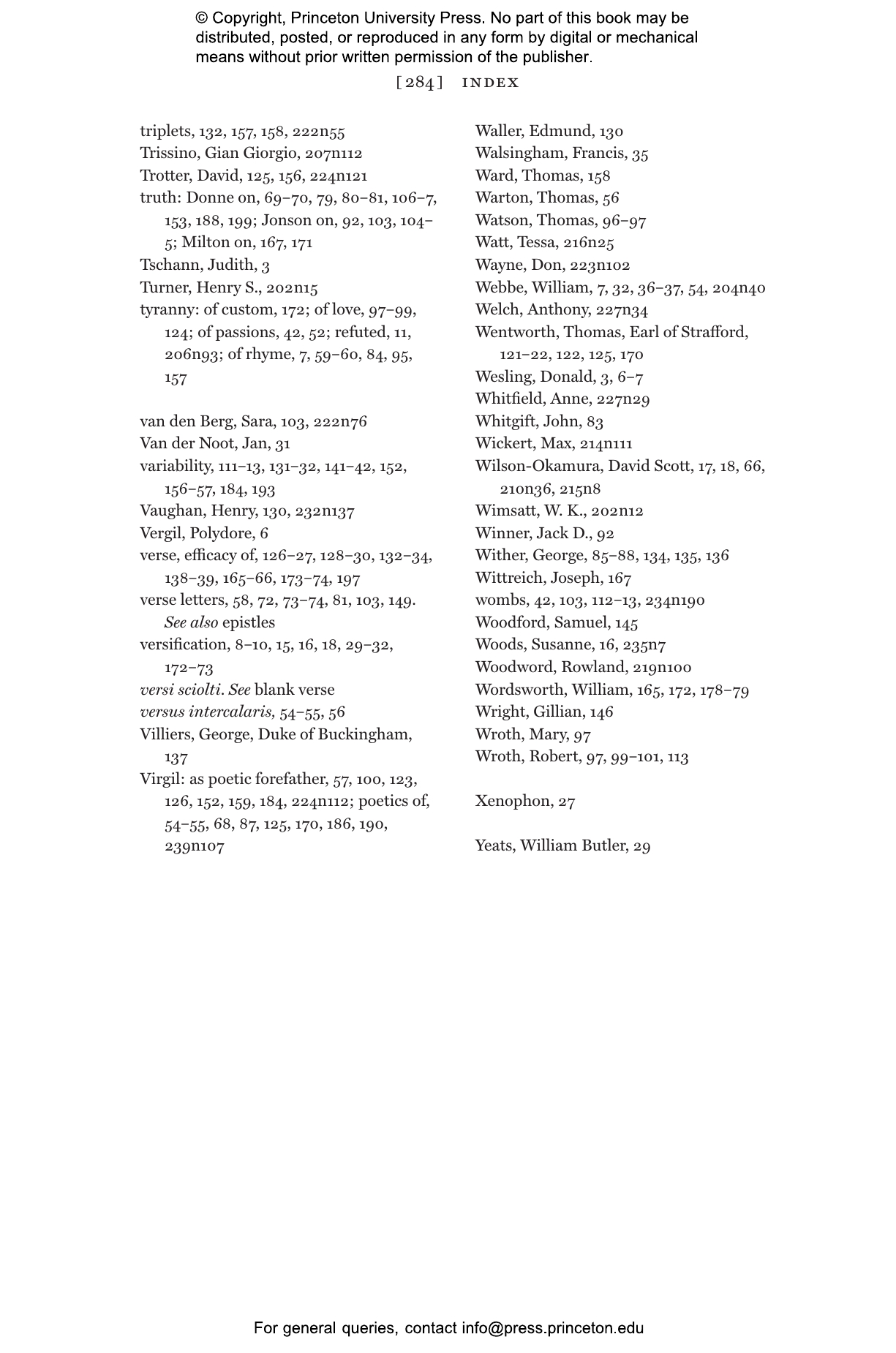The Fetters of Rhyme: Liberty and Poetic Form in Early Modern England
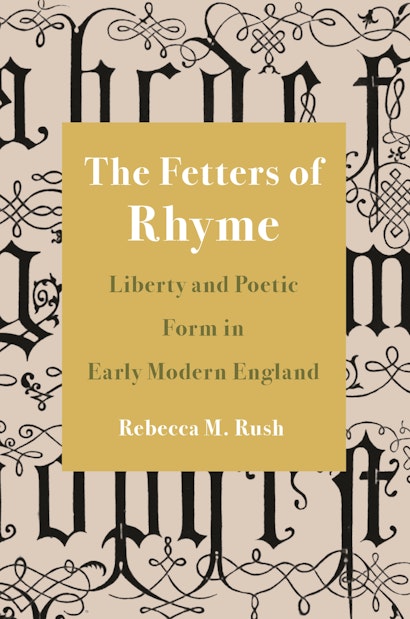

Hardcover
Paperback
ebook
- Sale Price:
- $29.40/£24.50
- Price:
-
$42.00/£35.00 - ISBN:
- Published:
- May 4, 2021
- Copyright:
- 2021
- 3 b/w illus. 1 table.
- Main_subject:
- Literature
30% off with code PUP30
In his 1668 preface to Paradise Lost, John Milton rejected the use of rhyme, portraying himself as a revolutionary freeing English verse from “the troublesome and modern bondage of Riming.” Despite his claim to be a pioneer, Milton was not initiating a new line of thought—English poets had been debating about rhyme and its connections to liberty, freedom, and constraint since Queen Elizabeth’s reign. The Fetters of Rhyme traces this dynamic history of rhyme from the 1590s through the 1670s. Rebecca Rush uncovers the surprising associations early modern readers attached to rhyming forms like couplets and sonnets, and she shows how reading poetic form from a historical perspective yields fresh insights into verse’s complexities.
Rush explores how early modern poets imagined rhyme as a band or fetter, comparing it to the bonds linking individuals to political, social, and religious communities. She considers how Edmund Spenser’s sonnet rhymes stood as emblems of voluntary confinement, how John Donne’s revival of the Chaucerian couplet signaled sexual and political radicalism, and how Ben Jonson’s verse charted a middle way between licentious Elizabethan couplet poets and slavish sonneteers. Rush then looks at why the royalist poets embraced the prerational charms of rhyme, and how Milton spent his career reckoning with rhyme’s allures.
Examining a poetic feature that sits between sound and sense, liberty and measure, The Fetters of Rhyme elucidates early modern efforts to negotiate these forces in verse making and reading.
